#other people also have identities. i will now explain those instead
Explore tagged Tumblr posts
Text
The Portrayal of DID in Ave Mujica
(I have to preface this by saying that I am approaching this from a narrative writing standpoint and from my own personal delving into psychology overall. The subject topic is complex and the medical knowledge on it is ever-evolving, so if any of my notions are outdated, I am very, so very sorry.)
(I also understand that the topic of trauma and DID might be a triggering experience to some people, so caution is advised.)
(The discussion will also have open spoilers about the show and as such is tagged with spoiler tags.)

If there's one thing I would never expect when watching a music show, it is for it to turn into a deeply introspective psychological drama about flawed characters grappling with anxiety, mental wellness, toxicity and so on.
I did something like this a few times before and I can't help but want to explore and convey my thoughts on the character writing and handling of dissociative identity disorder within this show.
Now, Ave Mujica's predecessor, MYGO (to which Ave Mujica is a sequel), did play with the portrayal of neurodivergent-coded traits and still remains one of the best attempts at that overall, but a lot of that could be written off as subtextual.
So Ave Mujica portraying DID (Dissociative Identity Disorder) in a textual way comes as a surprise.
What's even bigger surprise is the lengths the show goes to make the portrayal feel authentic and how up-to-date the overall knowledge within the writing is.
Now, for starters, some explanation is needed.
What is DID?
Dissociative Identity Disorder (DID) is a type of dissociative disorder that usually develops in early childhood due to traumatic experiences—most often emotional or physical abuse or neglect.
The conditions within the environment lead to a child failing to integrate into a unified identity due to compartmentalizing their trauma and various other facotrs. In layman's terms, "distancing themselves" from their own psychological trauma.
The key aspect to understand is dissociation, a concept that is crucial to DID but NOT limited to it. To quickly explain what dissociation is—to handle specific amounts of stress and trauma, the brain copes with the information via "disconnecting" one's sense of self from perception.
Dissociation is actually a very common reaction to trauma and can manifest in different ways without it being DID (hence dissociative disorders being a whole branch of stuff)—like, for example, dissociative amnesia, where a person might forget selective memories associated with a traumatic event.
Grief tends to sometimes lead to dissociation, especially during the early phases, too.
Another common example is depersonalization, which involves "perceiving yourself as an out-of-body observer," which usually involves an altered perception of time too, with time slowing down or speeding up or the concept of time losing meaning.
Both of those can manifest as part of DID, but can also exist separately—for example, derealization and depersonalization can be symptomatic of PTSD.
DID in itself as a concept is about a person at a young age failing to integrate into "one".
The way a child's growth goes is that the mind reintegrates and parses those their experiences and traumas shaping their identity. Experiencing dissociation doesn't instantly mean DID, because dissociation by itself is a common trauma-parsing mechanism, as I said before. A child can experience trauma, neglect, or abuse without it leading to DID.
In the case of DID, the child fails to integrate, the trauma/abuse/neglect instead leading to compartmentalized elements working together—a system.
It's important to note that trauma doesn't create alters, as it's been thought for a while. It's not something fake or "split" or "created"—the system is all the alters as equally "real"; it's just that alters themselves might have different traits of the identity.
While alters are identities, they aren't necessarily separate people—they are a system. Alters might differ from each other, and have separate memories, and skill sets, but every alter is part of that system. Alters don't appear out of thin air as separate entities and it's better to view a system as an entity comprised of equally real alters functioning together, with the "primary" one (the one that's out for the longest periods) being often called "the host".
Thus, alters can be subtle and almost indistinguishable from the host. And even if they have distinct personality traits, most alters would have an awareness to "fit in" by not standing out, instead internalizing them and trying to mimic the host personality (because it's "normal").
There isn't a secret evil spirit or a ninja assassin living in a person—portrayals like that (ex: the movie "Split") are extremely harmful because they perpetuate a toxic stereotype that just isn't true.
There's no "real personality and fake personalities" and so on. The current understanding of DID is a child at a young age, due to internal and external factors, failing to integrate into a singular identity.
Now depending on how young we talking, the person might have had a personality-before or might not have at the point DID develops, but the concept of "original/core" personalities is currently considered antiquated.
And just like alters aren't "created," they can't "die" either.
Now that this covered basic terminology and information, I can actually discuss about the show itself.
First, let's talk about Mutsumi and her character.
Mutsumi
From the very first appearance in MYGO, the characterization conveys the personality of someone who is stoic, internalizes her emotions, and has trouble communicating with others—her first spoken line in the show is ambiguous.
Mutsumi is a stoic, shy student who had been in a band together with her childhood friend, Sakiko, and three other people. The band imploded after her childhood friend suffered from circumstances she felt she couldn't share with others and disbanded it.

The character is often coerced or influenced by others to do things for them and plays more of the role of an observer.
It becomes quickly obvious that Mutsumi herself is extremely uncomfortable with this role—not only blaming herself for the band's breakup but also feeling awful about her friends' mental well-being afterward.
Meanwhile, Mutsumi's childhood is no better—as a child of a star actress and a famous comedian, Mutsumi didn't have what one could call "a normal childhood.". Her parents had surrounded her with wealth but at the same time had adopted a completely hands-off approach, which led to her feeling neglected and alone. For example, she doesn't even call her mother and father dad/mom/father/mother/etc., instead opting to refer to them by their first names like friends would do. The mother is also enamored with being an actress—for example, one of the things she would offer her daughter's friends visiting would be to watch movies she starred in.

The show makes sure the audience gets a sense of the scale of her home life—a luxurious house filled with servants where her mother is a star rather than a parent.
What's more, due to the circumstances of her parents she's constantly compared to her mother and father and their talents, with expectations placed to follow in their footsteps. This ends up with her feeling like she has nothing of her own in her life—whatever praise or expectation is placed upon her ties to The Star Actress and The Comedian instead of who Mutsumi is as a person.
As a result, she values the bonds she has formed with other people a lot. She cares deeply about her childhood friend (whose family circumstances are the actual reason for the band breakup), and she cares about the one other bandmate who had kept in touch with her (the person who is mainly keeping in touch due to selfish goals though).
So when her friend decides to create a new band, Mutsumi feels responsible to support her and help her.
Unfortunately for her, her friend is going through a lot emotionally, and the entirety of the new band consists of a lot of openly toxic individuals.
Thus she is placed into a situation where she has to juggle the neglect and distance she feels at home, the expectations her suffering friend is placing upon her, the expectations the world has for her due to her parents, and the pressure from being a member of an extremely popular band—a tough deal for someone who from the beginning had trouble expressing herself.
But hey, at least since the band has the whole pseudo-visual-kei thing going for it, she will be able to wear a mask.
Which is where her journey through Ave Mujica starts.
Ave Mujica and DID
The first notable thing we see happen is her struggling with an interview, reinforcing the idea that she has trouble expressing herself.

Ironically, this is another case where someone else ends up speaking over her.
The episode ends with the first notable trigger for her emotional state worsening, which is one of the bandmates going off-script and ruining the whole "secret identity" thing by unmasking them live on stage to an audience of hundreds if not thousands.

Considering her character set-up and her issues and insecurities, this is about the second most terrifying thing to Mutsumi in the entire world.
As the bandmates argue and blame each other over what had happened, the show then proceeds to take time to showcase how the pressure and the stress of what had happened affect her psychologically and emotionally.

This is a character who had been defined by the impostor syndrome caused by the neglect of her parents and comparisons society draws to them due to their fame—essentially getting doxxed live to an audience of hundreds if not more.
The show then dedicates its runtime to showcase how this character is slowly ground down by the building up pressure and anxiety, the dam breaking due to the traumatic experience—especially when she flubs an interview, causing even more tension and pressure.

"Don't speak out; play your role; don't make mistakes; be perfect or people will hate you."
The show makes sure to slowly build tension and highlight the growing anxiety and the increasing levels of dissociation the character experiences from the world around her as she goes through interviews and photoshoots—interactions that only worsen her mental state by anxiously comparing her to her parents or reminding her of the mistakes she made, as numbness overtakes her.

The anxiety, the stress, and the tension within all build to the point of insomnia as the character retreats to the one place she was implied to feel safe in throughout the show—the rehearsal room at home where she would spend time alone playing her guitar.
Because, again, as implied, her parents don't exactly pay any attention to her beyond showering her with wealth, and everyone else views her as an extension of her parents. So for her this is one spot that is truly hers.
And even that spot has now been taken because her mother had offered the whole band to use the rehearsal room. It's no longer just her space.

Depression, anxiety, and insomnia are but a few of the things that both influence and happen as a result of dissociative disorders
The show highlights the character's worsening physical state due to her deteriorating emotional state, to the point that the character has trouble walking down the hallway.

More importantly, the people around her—her band, her parents, her friend—they don't realize that. If anything, they put more pressure on her shoulders, they tell her to not stand out, to play the role to perfection, to not ruin the performance or further ruin the band's reputation.
The pressure and tension build to the point where the show depicts the first on-screen dissociative episode for the character.

Experiencing dissociation from gazing into a mirror is actually pretty common, as is the idea of recognizing your reflection as someone else. It's not limited to DID, however. There are common experiences where people suffering from anxiety might feel a sensation that they are looking at a stranger for example. Gender dysphoria might also elicit a feeling that the reflection is "wrong".
The show also showcases another common DID symptom: losing large chunks of time as the character finds themselves jumping from the changing room to the middle of the scene without knowing how she had gotten there.

The scene also involves the character witnessing(and more importantly, recognizing) multiple of herself. While the most common way for the host personality to perceive alters is auditory, visual perception is also possible, as are all other senses.
The series of visual hallucinations ends with a character making a mistake live on stage and experiencing a complete dissociation as she slumps onto a stage prop chair motionless like a doll with strings cut..

Essentially, this is a moment when no one is in control. The host personality has experienced complete dissociation, but neither the host personality nor any alters are "behind the wheel.".
Now, to this point, the idea is still subtextual (barely) in that the story shows but doesn't tell what is happening.
However, what comes after this grows more and more textual.
The dissociative episode and perceiving multiple of "you" leads to the character experiencing even more vivid hallucinations.
This time, however, the character directly acknowledges and converses with an alter within her mind-space.

Having a healthy and proper way of communication between host and alter(s) is actually crucial to functioning as a healthy system and living with DID.
Most of the conversation, however, happens within mind-space, as the character relives her past experiences and memories as if she were watching them as an observer, with the alter narrating her life's story.

The mindscape is often metaphorical so the alters don't necessarily always appear human, but they always would be "humanlike", because the brain perceives the alter as alive. The form alters might take within the mindscape is often dependent on the kind of trauma a person has suffered.

The story as narrated by the alter establishes the reason behind why the character values playing the guitar so much—because it's something truly hers, something she had learned on her own and something that is in no way "because of her parents".
But she feels like she's not good enough.
She can't be expressive, she has trouble communicating her emotions, and thus her playing skills, while technically perfect, lack that self-expression capability.
She can't make the guitar sing.
And thus due to impostor syndrome, she concludes that being "wrong" somehow is why the bands she gets involved with on her friend's behalf keep breaking up—why her best friend keeps suffering.
A person suffering from anxiety, trauma, and neglect, someone who has issues expressing themselves, would often wrestle with issues of self-hate and depression and Mutsumi is no different there.

Experiencing one's own memories from an outside perspective, as if watching a movie or seeing themselves from outside observing something is once again quite common in terms of DID.
As the toxicity within the band keeps growing and her friend keeps suffering, the character's anxiety and stress build further, the auditory and visual hallucinations intensifying.

Just a reminder that while this goes on and Mutsumi slips in and out of her mindscape, her best friend, her parents, and the whole band are completely unaware of any of this. In their minds, the dissociative episode she had experienced was "her acting out" or "acting" or just being "closed-off".
This is the first case where the alter has a direct and open back-and-forth conversation with the Mutsumi, rather than narrating her life like before.
Alters within a system often end up serving specific purposes—because they are more comfortable doing something the host alter isn't. Sometimes it's a single memory the host can't parse or a personality trait.
The alter in question showcases worry for the host's well-being—A Protector.
The alter represents worry over the character's own well-being and where the current stressful self-destructive path may lead.
(Important Note: I do feel the need to say that alters do not neatly fall into classifications and there's not some "class system" for Alters that is always true. There are many complex reasons for how alters within a system can be and there's a lot still unknown, as is true with the overall human mind. Since alters aren't created or "split", an alter merely providing a specific role doesn't mean they exist solely for that role, as it becomes clear with the case within the show too.)
The alter believes that if Mutsumi stays with the band, she will experience the full brunt of the band imploding and the alter also perceives Sakiko as someone who is not healthy for the character—toxic even.
Mutsumi however reaffirms that she wants to support her friend no matter what, to always be by her side.
Eventually, however, as the days go on, and the band keeps arguing, the character ends up tying together what is happening now with a traumatic event in her past—her best friend's previous band imploding in a similar fashion.
The character draws parallels between the two situations—between two traumatic experiences—which further worsens their wellbeing.

As a side note I do love Dutch-angles and how universal they are in conveying things going wrong somehow or being unsettling.
All of this leads to the final straw—a confrontation with her best friend, where the character ends up being accused of "not being good enough" and "not supporting her like a friend should".
Why can't she smile or talk or be more social?

Now I do feel the need to interject and say that while her friend is completely in the wrong here, things aren't that simple. Sakiko also has her own issues, depression, traumatic experiences, and absolutely horrible life—all of which she is unable to properly parse and thus turns towards alienating everyone who cares for her rather than showing how hurt she is.
This is the final straw, the moment where the anxiety and traumatic experiences build up to the point where the host just wants to escape.
A moment where subconsciously she'd want to turn to the someone for help.

This is also the first time this alter is properly given a name (one of Mutsumi's stage persona, Mortis).
The scene is eerie and haunting, but it has to be—sleeping is as close as the situation can get to ego-death.
(Because, like I mentioned before, parts of a system can't "die".)
Once the stage play starts, both the bandmates and the audience are treated to a performance that is unlike the character's usual self.

Mortis fulfills their role, shielding the host from a traumatic experience, taking it up to themselves to do something the host would suffer trying to do. In this case, it's to pretend everything is fine and play the role her best friend expects her in the band—to smile and to talk and to help keep it together.
From this point on, Mortis is in control.
She smiles, is social, and delivers efficient jokes to lighten up the mood—she pays attention to the wellbeing of other bandmates and is extremely expressive.

It needs to be noted that the bandmates and parents STILL have no clue. The other bandmembers barely knew her for a month so they don't really see anything wrong with the change in how the character behaves. If anything they see it as an improvement.
Mortis is doing everything they can to do what the host was too anxious to—to be a perfect actress, supportive and caring for the band, and nurturing an environment where the band stays together.
There are a few problems, however.
For starters, Mortis doesn't know how to play guitar, at all.

It's a skill and talent the host alter developed and as far as systems go not everyone would have access to the same memories, experiences, or skills and it's possible for alters to develop different skills than the host too.
And second of all, as the one who wants to protect Mutsumi, Mortis feels disdain towards the main source of Mutsumi's anxiety and depression—her childhood friend, Sakiko.
In Mortis's eyes, the dissociative episode the host suffered and the extreme amounts of anxiety and stress are all because of Sakiko.
This comes to a head in a scene where Sakiko, after spending a whole episode feeling uneasy because of how different Mutsumi is now, decides to have a one-on-one talk with her about what's going on.
It's in this scene that the show textually acknowledges DID.

What finally tips her off is that Mortis refers to her differently than Mutsumi would.
This scene also provides a direct affirmation of the fact that parts of a system don't "die"—they might however go dormant and "fall asleep".

As a side note, the scene does contain ominous framing, but it's mainly due to it mainly being from Sakiko's POV. The writing, however, makes it extremely clear Mortis isn't a villain as much as someone protective of Mutsumi and spiteful towards Sakiko due to her neglect of her best friend—and that Mortis isn't entirely wrong to blame Sakiko for this.
This is kind of surprising because that's pretty "new" information as far as the medical topic of DID goes. People used to think alters could die due to a faulty understanding of the idea stemming from the older now debunked theories as I mentioned before.
The reality, however, is, that alters aren't really something "different" nor "created/split"—a system has the same brain, and the same biological functions, which means the brain can't perceive itself as "dead".
DID develops at a young age due to neglect trauma or abuse. It doesn't suddenly happen because of some extremely tragic event as fiction often depicts it (the tragic events however can cause the host to dissociate and push specific trauma onto an existing alter).
The show, once again, acknowledges that too!

The scene basically spells out that Mutsumi's DID developed at a young age as a result of parental neglect and anxiety. Note that the show doesn't imply Mortis "having been created" ever.

Mortis basically spells out what Mutsumi wouldn't have been able to say—she speaks of the stress the band had caused Mutsumi and how Sakiko's neglect and toxicity ended up causing her to retreat into sleep.
(Once again have to add this: Alters can differ in terms of their thoughts, species, speech patterns, gender orientation, etc. Alters even can have different heart rates, eyesight, and how they respond to allergies.)
Mortis is resolute to protect Mutsumi and her band, but she's also a child—one that can be very blunt in the ways Mutsumi isn't and also naive in the way Mutsumi wouldn't be.
She can't help but detest Sakiko for her toxicity and the trauma it has caused.
She bluntly states that Mutsumi ceding control to Mortis is Sakiko's fault and if Sakiko keeps acting this way instead of actually parsing her problems, Mutsumi might never return.
Mortis isn't merely "a role protecting someone". She is childish and she is, in a way spiteful and she has an opinion about Sakiko that Mutsumi might not agree with.
There's a struggle there because the dissociation between the two alters is too big—there's a lack of communication as once Mutsumi gets to interact with Mortis again, the two are talking past each other.
Mortis is way too focused on what Sakiko had caused and on how it had hurt Mutsumi, while Mutsumi is still ever so focused on how much Sakiko herself is hurting and ignoring her own problems.

It's somewhat common for alters to communicate their memories or experiences with each other via mindspace creating a filing system of sorts as some described it as a computer with a search bar or a cabinet.
The show makes sure to highlight the dissociation currently between Mutsumi and Mortis and the communication between the alters having been strained due to conflicting motives and viewpoints on their mental wellness and how much a person Mutsumi cares about affected it.
The show also doesn't shy away from the problematic treatment of mental wellness in the world and how often it gets sensationalized.
The first major example is the public's reaction to Mutsumi dissociating on the stage—the band is flooded with demands to REPEAT that "performance". In fact multiple show appearances and stuff set that as a condition for the band appearing at all. To the public there's not even an ounce of worry that this was something real—to it couldn't have been anything but acting. Which is actually a common toxic reaction towards systems in the real world. Even within the Ave Mujica tags there were people screaming how "Mutsumi must be just pretending to have it".
Even one of Mutsumi's teammates mistakes her dissociation and Mortis for masterclass acting talent and is STILL haunted and feeling inferior by it even after she KNOWS what actually happened.
The characters also use the outdated term "split personality" when conversing about Mutsumi and Mortis and a majority of the cast doesn't "get" what this is and are way out of their depths—Sakiko blames herself for "having broken" Mutsumi, Umiri and Uika just completely don't care, Nyamu feels insecure and the MYGO cast are also just as out of their depths even though they display far more empathy.
It's a sheer contrast to one character who has no direct connection to Mutsumi but is known for her blunt nature and ends up recognizing both Mutsumi and Mortis as individuals (even asking for the name of each alter when they exchange introductions) and befriending Mortis.
Likewise, when Mutsumi and Mortis end up arguing over their motives and goals and falling down the stairs, the first reactions the onlookers have is to...snap photos and film the situation because it's a famous person and maybe this is some performance too! A completely cold and cruel audience of observes that keeps snapping photos even as another characters desperately begs them not to film this.

And of course, it gets shared and goes viral on social media.
Overall so far the representation of DID and overall mental-wellness issues in Ave Mujica (and MYGO) have been the series highlight and I certainly hope the show continues to treat the subject matter with care and research needed as it further delves into the character.
Another highlight is the variety of issues and insecurities the other main characters are facing—from Sakiko's complex traumatic experiences and implied self-harm tendencies, to Uika's obsession, to Nyamu's insecurities to Umiri's complete emotional disconnect and compartmentalizing to the point others see her as lacking empathy (even though that last scene implies it's not completely true, so we don't really know what's exactly going on there).
Ave Mujica, if it lands, is shaping up to be one of the best shows in a while when it comes to character introspection and psychological themes.
#bang dream#ave mujica#mutsumi wakaba#wakaba mutsumi#ave mujica the die is cast#bang dream ave mujica#bang dream girls band party#spoilers#sakiko togawa#togawa sakiko#umiri yahata#nyamu yuutenji#ave mujica spoilers#ave mujica meta stuff mine#ave mujica analysis#bandori#bandori stuff mine#Long Posts on Psychological themes within narrative writing#mortis ave mujica#uika misumi#tw: mental health#tw: dissociation#tw:trauma
330 notes
·
View notes
Note
Unlike other Bloggers, you use science to explain everything which sooo helpful. So can you please prove the existence of void? I'll be very grateful to you 🕊️🫶🏻!<3
How to explain the Void state simply

Alright, I’m going to try explaining the void in the simplest way I can, based on how I personally see it.
The void state is, in my opinion, a deeply altered state of consciousness, a trance-like or hypnotic state, that feels “magical” because of how detached you are from the material world, your ego, and even your identity. It’s a state where only awareness remains. That’s why we call it “pure awareness.” In this state, your subconscious becomes highly open to suggestion, which makes manifestation, shifting, or reprogramming incredibly easy.
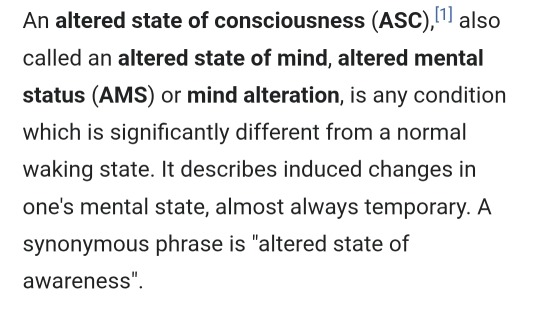
If we were to explain this from a hypnotist’s lens, the void would be similar to a deep level of somnambulistic trance, a level where awareness remains but the ego dissolves. Many don’t realize this, but when people affirm or reprogram their beliefs daily, they’re often inducing a light hypnotic trance. The void just takes it to the extreme. Some people fall into it super easily (high hypnotic suggestibility or/and resistance to ego dissolution), while others take longer, and that’s okay.

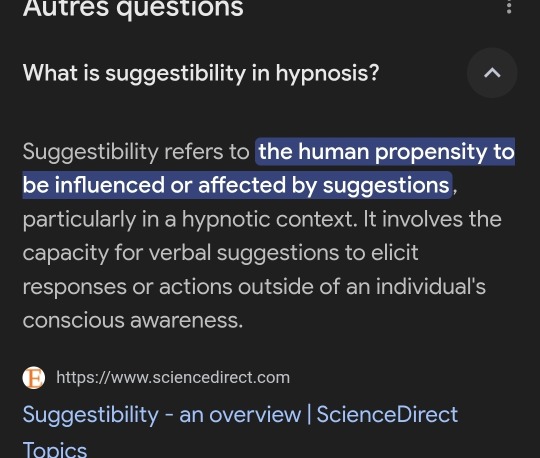
Hypnotic suggestibility can vary depending on the context, the individual, internal resistance, etc...
As someone who’s done hypnosis before, I’ve even had an ex-friend reach the void state during one of my sessions. That’s when I started to understand just how close the two things can be.
So now: how do you reach the void state intentionally? I’ll give you a method based on trance depth, awareness detachment, and shifting logic:
Void Entry Method
1)First, enter a light altered state of consciousness.
Any technique is fine,breathwork, meditation, a light hypnotic induction, (I invite you to go see my blog on holitropic breathing for those who have difficulty relaxing and have a lot of internal resistance)whatever helps you detach a bit from body awareness. You need to access the first layer of trance. Why? Because being close to “pure consciousness” requires that inner silence and disconnection from the sensory/mind chatter layer. This is what I refer to as reducing brainwave frequency (theta or delta).
youtube
You can just listen to a guided meditation or do guided breathing.
youtube
2)Do a body scan or use a short hypnosis video.
The goal is to sink deeper. A body scan brings your focus away from external stimuli and locks you into internal awareness, helping your brain naturally drop into deeper trance (again, theta/delta waves).
youtube
Listen to this kind of video who are short
youtube
3) Break the trance. Then repeat.
Yes,exit the trance, then re-enter. Do it 2-4 times. This repetition helps condition your subconscious to go deeper every time. Think of it like training a muscle. Each time, your mind knows where it's going and lets go a little more. Affirm slowly or count from 10 to 1, you can also create a trigger word, It works very well especially for people with resistance.

The link to know more about hypnotic triggers.
4)Make sure your guided video or induction is short.
Since you’ll be repeating it several times, choose a short track , ideally something that helps you drop fast. If you're counting, go from 1 to 5 slowly each time as you descend. Or do it alone.
youtube
This video does the job very well.
5) Once you’re deep, add theta or delta wave audio.
This is where you really begin to "float." You can also add subliminals or anything relaxing to you. (And yeah, please use a blue light filter if you're on your phone to not break everything you just did.)
youtube
I invite you to listen to three specific frequencies: the frequency at 7.83 Hz, the frequency at 3 Hz And possibly the frequency at 1hz. Take what suits you and download beforehand so as not to be bothered by an ad.
youtube
youtube
6)Use paradoxical suggestions during your last trance.
Instead of affirming “I am in the void”, which can trigger doubt, say:
-> “Maybe I’m in the void… maybe not. Maybe I already entered. Maybe I’ve always been in it. Or maybe i'm even already on my DR and I'm going deeper or lighter ,I'm not sure anymore”
This is straight from hypnosis techniques. It distracts your conscious mind, lowers resistance, and eases your transition by bypassing the usual overthinking. Your brain stops scanning for proof and just accepts. You can also confirm your intention at that moment of manifestation or going into your desired reality.
7)You’re in the void.
At this point, try affirming softly or just enjoy the state. If you feel nothing, that’s okay, the void often feels like everything and nothing at once. If you're aware of awareness, you’re there. If you are not, you can start a cycle again or try again later. Try to note what you feel physically and mentally.
So to answer your question directly:
The void state is not a “magical place,” it’s a mental state of pure awareness reached through deep trance. It allows extreme suggestibility and detachment, which is why manifestation and shifting become almost instant or incredibly easy. i link it to advanced hypnosis, brainwave alteration (theta/delta dominance), and ego dissolution, all of which are well-documented in neuroscience.
It’s not about “believing” in the void,it’s about understanding what’s happening in your mind and body when you touch it.

The default network mode disconnects the prefrontal cortex calms down which opens your perception of consciousness and allows alignment with your desired reality more easily, moreover the void state isn't the only stade capable of doing that.
#shifting#fulfillment#reality shifting#reality shifting community#self concept#shiftinconsciousness#shifting help#shifting methods#desired reality#dr self#void success#void state#void#shifter#shifters#anti shifters dni#shiftingrealities#manifestabundance#loalo#loa tumblr#loa blog#black shifters#kpop shifting#marvel shifting#reality shifter#shiftblr#shiftblr community#shifting advice#shifting antis dni#shifting blog
87 notes
·
View notes
Text
Phainon will fail Nikador's trial.
Let me explain;

TLDR; Phainon will fail the trial as Nikador will reject him. However, he will be chosen by Kephale to lead the people of Amphoreus to victory. The coreflame of Nikador will instead go to an unwilling Mydei.
Soooo, Phainon is off on a big adventure trying to claim Nikador's divinity after surrendering their coreflame to the Vortex of Genesis since the ambassador of the prophecy doubts his strength of will. I'm here to tell you that he will fail this trial in some shape or form.
Throughout the trailblaze mission, Phainon proves on multiple occasions that he worries about those he cares about constantly. Obviously, the best example of this is how desperately he wants to help Mydei fight Nikador. When he's denied, and sent to discover Nikador's weakness instead, he spends the next couple of hours in-game yapping about how much time they're wasting. He's worried out of his mind, and the rest of the cast picks up on it all the time.


Not only that, but he doubts himself. Something troubles him ahead of surrendering the Coreflame to the Vortex, which both Castorice and Dan Heng notice. He seems to have no qualms about admitting it, but he clearly can't shake whatever it is making him falter.




While there is nothing explicitly stating what he's worrying about, the possibilities are endless. Prior to being chosen by the prophecy, Phainon was fuelled by his desire for vengeance, described by Castorice as being a "hollow shell". She questions whether or not his new mission takes priority over his desire for revenge. Similarly, Mydei says Phainon's fear holds him back, and that his resolve must be toughened if he is to withstand whatever Nikador throws at him. Phainon evidently wears his heart on his sleeve, and it's a very troubled heart.
What this shows is that Phainon is not ready to dedicate himself entirely to the fight, which Nikador demands. Nikador uses extreme violence to extinguish strife and war to maintain the balance of Amphoreus, which currently doesn't quite line up with Phainon's character. He is more inclined to using violence as a way of defending and protecting people.
Now, that's not to say that Phainon has nothing to do with Nikador at all. He seems to be a figure the people can rally around and follow into battle, much like Nikador. However, I don't think this is enough to see him through his trial.
So, while Phainon will be rejected by Nikador on account of his fears, he will instead be chosen by Kephale.




Phainon is the Deliverer. This isn't just a silly nickname given to him by Mydei - it's his role in the story of Amphoreus. When he has overcome his own struggles, he will lead the people and the Chrysos Heirs through the crisis and towards a new dawn. In Aglaea's own words;

Now, what exactly she means by this is unclear, but it gives me an uneasy feeling. The only miracles we have seen so far have all involved looking back in time, which Phainon currently cannot do. However, Aglaea's words are eerily similar to those describing the legend of Kephale's return in the Tides of the Basin. Here, Kephale leads the people to victory against the black tide, which seems more fitting for Phainon's character.

So, Phainon will be chosen by Kephale, whether that means receiving their Coreflame or assuming their identity, or perhaps he already is Kephale, in his own way.
This is not only conveyed to us textually via foreshadowing within the story itself, but it is also communicated via visual design. Phainon's design is positively littered with Kephale's symbol and other sun-related imagery.

I can spot at least 12 instances of Kephale's symbol or sun motifs in his design. That's no coincidence. In comparison, the only real reference to Nikador is the fact that he wears white, which Nikador also does, according to the information provided via the Tides of the Basin.
But if Phainon won't get Nikador's divinity, then who will?
Well, the game basically shoves the answer in your face; Mydei. He's the prince of Castrum Kremnos, he has some manner of bloodlust, and he has no reservations about using violence as a means to an end. On paper, he's the perfect candidate, which Phainon states to Aglaea. However, Mydei has refused the Coreflame. He has done so implicitly, as well as explicitly, to both Phainon and Aglaea. He doesn't want the Coreflame, nor the divinity that comes with it, because he's afraid of leading his people down the same dark path as his predecessor. Seemingly, the only reason he wanted to deliver the final blow to Nikador was for bragging rights.
Thus, something has to change drastically for Mydei to not only be offered the Coreflame, but to accept it. What this will be, I have no idea, but it will start with Nikador spitting Phainon back out without making him a demigod.
And if that wasn't enough to convince you; they are literally associated with these Titans in-game:


In their respective entries in Amphoreus' Saga of Heroes, Phainon is depicted with the symbol of Kephale, whereas Mydei is depicted with Nikador's. Whether this is an oversight on hoyo's behalf or a not-so-subtle attempt at foreshadowing, we will likely never know, but it's interesting food for thought.
Now, this isn't some earth-shattering revelation, nor is it some super deep character analysis, but it will be super interesting to see Phainon's story unfold. His character development has the potential to be some of the best stuff hoyo has ever written if they manage to pull it off.
#like I’m calling it right now#he’s gonna fail the trial#mydei will get the core flame against his will#and then at the end of amphoreus’ arc phainon will be chosen by kephale to lead the heirs against the threat that will end the world#also!!#while I have seen some 3.1 leaks I'm trying to stay away form them#and they haven't influenced this post#there's a fair bit of#phaidei#in here too#they're two halves of the same coin!!#I can't help it I'm constantly wearing the shipping goggles when it comes to them#they make me lose my mind a little#hsr#honkai star rail#hsr spoilers#honkai star rail spoilers#phainon#character analysis
200 notes
·
View notes
Text
Destiny Stealers, Destiny Swappers and the reasons why I don't believe this works in the long term
As this concept is gaining attention from some groups of people on tiktok mainly
Hi everyone, as I was scrolling on tiktok I noticed that people started to mention about destiny stealing/destiny swapping that I found interesting that it gained attention from lots of people. It is like everybody needed for this to be coined as a term to mention. Because it happens, right? In the easiest and most common way, we tell a dream of ours to a friend and see that friend achieving it instead of us.
Although I think this is very common and that is one of the reasons why I do not EVER share my goals or inspirations with other people -who don't matter how close we are- , I also do believe that destiny swapping or destiny stealing comes with HUGE KARMA. Let me explain:
There are things that make each person with a character unique. People that are DESTINED to achieve big, receive big go through painful transformations most of the time. Those people who have big dreams to achieve; those are completely PERSONAL to them as a result of their own storyline, destiny of their lives. Therefore they dream what their soul craves. Copying their identity, or mimicking them, or trying to steal their dreams by achieving what they want to achieve first, WILL NOT BRING THEM GOOD IN THE LONG TERM.
Simply because, it is not what they think their soul wants AT ALL. In fact, I think people who copy or try to swap destinies unfortunately do not have a character, persona on their own. All of the desires or dreams a person has told you is unique to their own life experiences, and believe me, those dreams are a result of hardwork and suffering, and when they want to steal it, they simply miscalculate...
Being that person WITHOUT THE HARDWORK OR GOING THROUGH THEIR PAIN is what they are missing. So in turn, the universe, when they think they achieved/stealed the other person's destiny, will show them WHAT IT ACTUALLY MEANS TO BE THAT PERSON. Asking them "are you able to handle it?"
Those people who determined what they want to achieve most of the time spend a lot of time analysing, doing the inner work, understanding where they belong and what they want to do with what they HAVE in their hands in this lifetime. Trying to steal their spot WITHOUT GOING THROUGH what they had been through, I believe will only bring the consequences to the stealer.
Therefore, if you think someone wants to be you, or steal your spot and eliminate you completely, cut ties immediately and do not engage your energy field with them. If you think it already happened, just keep going on and wait, I guarantee you that the person who thought they swapped destinies will shrink in the long run, because that person does not know the ways you took to get where you are right now. So instead, wait, observe and think to yourself, "show me how it is to be like me."
Hope this makes sense to you. I wanted to write these down because I have lived this situations over and over in my life and wanted to give those with concern a little bit of relief that they are safe and the most important value in this life to achieve your dreams is through a great character that cannot be taken by anyone else, because it is completely yours for ever.
Sincerely,

#destiny swap#destiny swappers#destiny swapping#destiny stealer#destiny stealing#astrology community#astro observations#astro notes#astrology#thoughts#astrology observations#astrology notes#astro placements#astrology signs#tarotcommunity#tarot cards#tarot reading#tarot#tarot reader#venus retrograde#jupiter#planets#saturn#neptune#mars#pisces stellium#12th house stellium#destiny matrix#tiktok#tiktok community
74 notes
·
View notes
Note
Since you’ve talked about the secret between Adrien and Mari and how Adrien has no agency, back when the s5 bible leaked, there was a part where it said that „Adrien will never find out about his father being Hawkmoth“ or something like that.
Do you think the writers will actually stick with that rule? Because I just can‘t see how this is supposed to be narratively satisfying…
I have no idea and that's not a compliment. It's a condemnation. Adrien should absolutely find out about his father. The story isn't satisfying if he doesn't. But Miraculous doesn't seem to care about being satisfying. It cares about being shocking and that's a terrible thing. To explain why, let's talk about the topic of predictability in narratives and why it's generally a good thing.
We'll start with a quote from a famous George R.R. Martin interview where he perfectly explains why you want your stories to make logical sense with the final line of the quote being the most important part:
Before the Internet, one reader could guess the ending you wanna do for your novel, but the other 10.000 wouldn’t know anything and they would be surprised. However, now, those 10.000 people use the Internet and read the right theories. They say: “Oh God, the butler did it!”, to use an example of a mystery novel. Then, you think: “I have to change the ending! The maiden would be the criminal!” To my mind that way is a disaster because if you are doing well you work, the books are full of clues that point to the butler doing it and help you to figure up the butler did it, but if you change the ending to point the maiden, the clues make no sense anymore; they are wrong or are lies, and I am not a liar.
This is a writing rule that I believe in my soul, but that the Miraculous writers don't seem to care about. Miraculous will introduce things that should be important to the story, but they end up meaning nothing.
A great - and relevant - example of this is the Chat Blanc stuff. Chat Blanc comes near the end of season three, early season four sees Marinette have a nightmare about Chat Blanc, and late season four is all about Chat Noir feeling left out as Marinette trusts Alya over him. Many viewers looked at these story beats and went, "Oh, okay, so Chat Blanc is causing Marinette to push Chat Noir away. Got it." because it honestly was the only thing that made any sense.
But that's not what was going on. The official word is that Marinette was just stressed over her new role as the guardian even though nothing in the text really explains why that would strain her relationship with Chat Noir. It actively improves her relationship with Alya! Why wouldn't it do the same with her long-term partner? As we've discussed several times, he was fine with the status quo at the start of the season and didn't even ask for more responsibility until Kuro Neko so it's not like he was doing anything to stress her out until he randomly quit on her.
This begs the question: if Chat Blanc isn't haunting Marinette and Chat Noir isn't stressing her, then why doesn't she share things with Chat Noir? Why go with Alya when Alya's identity was revealed to the villain requiring Alya to go into "hiding" as Rena Furtive? There's really nothing in the text to answer those incredibly important questions. Question that are only incredibly important because the writers actively chose to have multiple episodes dedicated to Chat Noir feeling left out. Why that happened really isn't clear so there's also no clear resolution. What needs to change? No clue! Did that thing change? Once again, no clue! It's all set up with no pay off!
Or, at least, we don't get the kind of pay off you'd expect to see. Aka the big dramatic moment where Ladybug finally confesses what happened to her. Instead, Chat Blanc's big pay off is Adrien missing the season five fight because he just magically knows that Chat Blanc happened:
During the scene that leads to Adrien wearing the Alliance ring after being reticent to it, [the writers] say that they had a conflict when writing it as they had to find a way for Adrien to not become his superhero self, cataclysm the walls and go help his lady in Paris. The end result is that Adrien is reminded of the devastating effect of his power by the nightmare and would therefore do anything to avoid hurting people, and so he wears the ring. Mélanie says that he "could become Chat Blanc" and the others add that even though he does not remember and has never lived it, Chat Blanc still has an influence on his actions.
So Chat Blanc doesn't matter to the person who actually met him, but it does matter to the person who was Chat Blanc an alternate timeline even though this show has never once showed another akuma victim to be haunted by their akumatization. Does that make any sense? No, it's frustrating and confusing, but it does tell us the way these writers think and that insight doesn't bode well for Adrien learning the truth about his father. It's not enough for me to say with certainty that it will never happen, but I would not assume that it will happen. The show has an active pattern of avoiding these kinds of payoffs:
Example 1: Multiple Lila appearances had her claiming to be Ladybug's BFF and she was even interviewed for the Ladyblog based on this lie, but as soon as Alya learns Ladybug's identity, the show conveniently forgets about this ongoing lie because then Alya would be against Lila and the writers didn't want that.
Example 2: Marinette gave Alya the Fox without telling Chat Noir that they had a new full-time teammate, but Chat Noir never learns about this development. The most he gets is that Ladybug revealed her identity to someone, which is nowhere near as important as the Rena thing in terms of the ongoing fight against Paris' resident supervillain. The fact that Rena Rouge is now Rena Furtive is literally never revealed to him. He learns that she's active in the final fight, but the name change and her status are forever a secret. Alya being Rena Furtive also leads to nothing useful for the heroes. You could remove that from season four and it would play almost exactly the same same for a few minor tweaks.
Example 3: Luka learns Ladybug and Chat Noir's identities in Wishmaker, but this reveal is just used as an excuse to write Luka off the show in season five. The episode that gets him written off shows Monarch realizing that Luka knows the identities because of some mental connection that happens during akumatization. This is damning because Kagami was akumatized twice in season five (Perfection and Protection) and we later learn that Kagami learned Marinette's secret identity during Perfection, the first of the two episodes. In fact, Kagami learned the secret mere minutes before getting akumatized and she was akumatized because Marinette wasn't talking to her so Marinette being Ladybug should have been on her mind and yet Monarch didn't get so much as a hint of any of this!!!!!
That's not even getting into the issue of the fact that nothing in Perfection so much as hints that Kagami knows even though the episode is all about her relationship with Marinette or the issue of Marinette keeping her secret identity safe even though she was almost akumatized the freaking times! SOMEONE PLEASE MAKE IT MAKE SENSE!!! WHY IS IT WRITTEN LIKE THIS??? How is anyone supposed to follow such shitty lore? The audience can't text appropriately if they don't know what the stakes are.
So, yeah, I'd put a small amount of money on Adrien never learning because that would be way too satisfying and Miraculous hates being satisfying or logical. The times we do get big reveals are generally terrible like with freaking Andre the Ice Cream Man being the one to tell Adrien about Marinette's crush or Lila being outed because of a plan Sabrina and Marinette made up off screen or Adrien finding out about Chat Blanc because magic. Watch Andre the Ice Cream Man be the one to tell Adrien about his dad for some reason. Nothing would surprise me at this point.
#anon ask#predictability is good#chat blanc my beloathed#chat blanc salt#adrien deserves better#ml writing salt#ml writing critical
71 notes
·
View notes
Text
Richter Belmont and the Double Edged Sword of Legacy
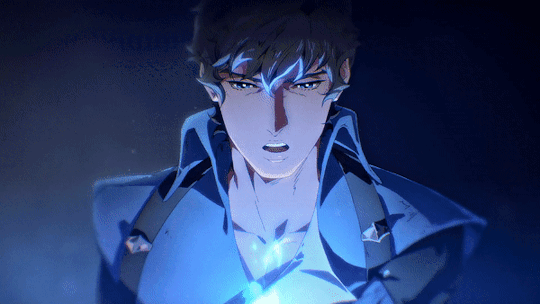
I haven’t seen a lot of discussion about Richter’s arc in specific, and a few posts where people seem to think he didn’t have one at all. To anyone who thinks so, I respectfully disagree and allow me to explain why.
A big theme of this season was legacy and how it affects people, the same way history is a connected story that doesn’t come out of nowhere. Alucard even draws the connection for us, describing us all as “part of the same story” and likens this to family.
Annette’s arc perfectly embodies this theme. Through seasons 1 and 2, she learns to temper her anger and her grief, and in the end she reconnects with her ancestors and culture. It’s true this is a big part of the show.
But it wasn’t the entirety of the show.
Richter very much juxtaposes her.
While Annette finds strength in connecting to her past, Richter has to do the opposite. He talks about the burden he’s felt of carrying his family legacy. That being a Belmont has always been a duty he’s understood since early childhood (Juste echos this, saying Belmonts “don’t bother” with childhood).
We come to understand why Richter tried to help his mother fight Olrox as a child despite Julia’s orders to flee; young Richter already had begun to understand his place in the world as a Belmont. That he was meant to be a vampire-slaying hero protecting others even at the cost of his own safety and life. Hence the “Belmonts slay vampires” phrase he uses (with one notable exception but let’s get back to it).
Except then his mother died. And it called everything he knew into question. As Richter says “I realized it was all bullshit”.
This is the explanation for why he has been unable to access his magic. Psychologically, he is not only traumatized from watching his mother die and feeling responsible, but also his entire sense of identity and purpose have been thrown into question. In S1, he doesn’t really feel like a Belmont. He does what Tera and Maria ask of him, and he even says so! Remember he flat out says in S1 that he just does what they tell him is the right thing to do. This is because he’s lost his own mooring and sense of purpose and relies on the ones he loves to steer him
But when he reconnects with Juste—his grandfather—and sees the results of abandoning their family duty, things change. Richter makes a decision. He has purpose and higher cause: to protect those he loves. Thus his magic returns. (This is why the infamous “but fuck it” line is neither lazy nor just empty comedy relief. The usual line he says is “Belmonts kill vampires”, but instead Richter shrugs off the shackles of legacy and says “but fuck it” because none of that matters right now. Whether Juste is right that the Belmont family fight is a doomed Sisyphean task is irrelevant. What matters right now is saving the ones Richter loves.)
Then in S2, he only grows stronger as his bond to Annette deepens, and he is able to verbalize his feeling about his family legacy. He meets Alucard, who is equal parts family myth as much as he is friend. Richter gets a chance to reconnect to his family, after years of alienation, and finally having the Belmont legacy back in his grasp, what does he decide?
That… it doesn’t matter. That the pressure of it was weighing him down. That he doesn’t care what a bunch of dead ancestors think of him.
Instead, he fights for those he loves in the here and now. It is enough that his mother whom he knew and loved is proud of him. It is enough to protect Annette and comfort Maria. It is enough to fight for what is present, and not bear the burdens of the past.
Compare this to the villains who have the classic Vampire problem that they cannot let go. Drolta can’t let go of Sekhmet, even when the pursuit turns her into a worse and worse monster. Erzebet can’t let go of Drolta and revives her as an even more accursed creature, inadvertently signing her own death warrant. Vaublanc can’t let go of “his property” and pursues Annette to his own demise. Olrox can’t let go of his lovers and inevitably turns them. The Countess can’t even let go of her dead husband’s head and carries it around everywhere! The nobility likewise can’t let go of their power over the people and want to squash the revolution. Thematically, Richter’s ability to let go of the past and hold onto what matters in the here and now is diametrically opposed to the villains’ biggest flaw and driving force.
Alucard is deeply affected by this, and it’s a sentiment he echos at the end. He is ready to try and find something worth fighting for too. Same as the revolutionaries. Even if it’s doomed to be fleeting.
When it comes time to let Annette go, Alucard covers the Belmont family crest on Richter’s back and gives him permission: Don’t do it for your family or to save the world. Do it because it’s what she would want.
If that isn’t a show all about Richter, then what is? Would it have been better if he had just been brash and powerful the entire time?
Personally, I think this was a risky but thoughtful way to approach a Belmont who is so beloved but whom still lives in the shadow of Trevor and Simon.
Especially given that, if you know the games, Richter will be the one to abandon the family legacy eventually. The reasons have never been explained in the games, though most speculate it was due to shame after the events of Symphony of the Night. But Nocturne presents us a potential alternative: maybe it wasn’t shame or misery at all.
Maybe Richter just… let the past go.
Nothing lasts forever.
Not even Dracula.
88 notes
·
View notes
Note
Hello! First, I wanted to say thank you for your post about updating software and such. I really appreciated your perspective as someone with ADHD. The way you described your experiences with software frustration was IDENTICAL to my experience, so your post made a lot of sense to me.
Second, (and I hope my question isn't bothering you lol) would you mind explaining why it's important to update/adopt the new software? Like, why isn't there an option that doesn't involve constantly adopting new things? I understand why they'd need to fix stuff like functional bugs/make it compatible with new tech, but is it really necessary to change the user side of things as well?
Sorry if those are stupid questions or they're A Lot for a tumblr rando to ask, I'd just really like to understand because I think it would make it easier to get myself to adopt new stuff if I understand why it's necessary, and the other folks I know that know about computers don't really seem to understand the experience.
Thank you so much again for sharing your wisdom!!
A huge part of it is changing technologies and changing norms; I brought up Windows 8 in that other post and Win8 is a *great* example of user experience changing to match hardware, just in a situation that was an enormous mismatch with the market.
Win8's much-beloathed tiles came about because Microsoft seemed to be anticipating a massive pivot to tablet PCs in nearly all applications. The welcome screen was designed to be friendly to people who were using handheld touchscreens who could tap through various options, and it was meant to require more scrolling and less use of a keyboard.
But most people who the operating system went out to *didn't* have touchscreen tablets or laptops, they had a desktop computer with a mouse and a keyboard.
When that was released, it was Microsoft attempting to keep up with (or anticipate) market trends - they wanted something that was like "the iPad for Microsoft" so Windows 8 was meant to go with Microsoft Surface tablets.
We spent the first month of Win8's launch making it look like Windows 7 for our customers.
You can see the same thing with the centered taskbar on Windows 11; that's very clearly supposed to mimic the dock on apple computers (only you can't pin it anywhere but the bottom of the screen, which sucks).
Some of the visual changes are just trends and various companies trying to keep up with one another.
With software like Adobe I think it's probably based on customer data. The tool layout and the menu dropdowns are likely based on what people are actually looking for, and change based on what other tools people are using. That's likely true for most programs you use - the menu bar at the top of the screen in Word is populated with the options that people use the most; if a function you used to click on all the time is now buried, there's a possibility that people use it less these days for any number of reasons. (I'm currently being driven mildly insane by Teams moving the "attach file" button under a "more" menu instead of as an icon next to the "send message" button, and what this tells me is either that more users are putting emojis in their messages than attachments, or microsoft WANTS people to put more emojis than messages in their attachments).
But focusing on the operating system, since that's the big one:
The thing about OSs is that you interact with them so frequently that any little change seems massive and you get REALLY frustrated when you have to deal with that, but version-to-version most OSs don't change all that much visually and they also don't get released all that frequently. I've been working with windows machines for twelve years and in that time the only OSs that Microsoft has released were 8, 10, and 11. That's only about one OS every four years, which just is not that many. There was a big visual change in the interface between 7 and 8 (and 8 and 8.1, which is more of a 'panicked backing away' than a full release), but otherwise, realistically, Windows 11 still looks a lot like XP.
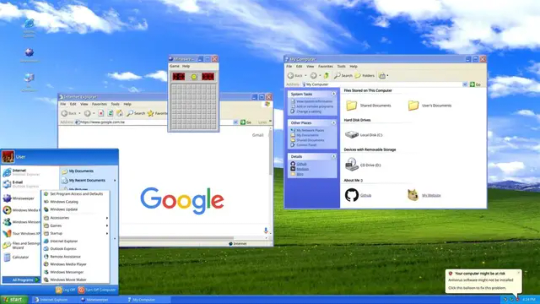

The second one is a screenshot of my actual computer. The only change I've made to the display is to pin the taskbar to the left side instead of keeping it centered and to fuck around a bit with the colors in the display customization. I haven't added any plugins or tools to get it to look different.
This is actually a pretty good demonstration of things changing based on user behavior too - XP didn't come with a search field in the task bar or the start menu, but later versions of Windows OSs did, because users had gotten used to searching things more in their phones and browsers, so then they learned to search things on their computers.
There are definitely nefarious reasons that software manufacturers change their interfaces. Microsoft has included ads in home versions of their OS and pushed searches through the Microsoft store since Windows 10, as one example. That's shitty and I think it's worthwhile to find the time to shut that down (and to kill various assistants and background tools and stop a lot of stuff that runs at startup).
But if you didn't have any changes, you wouldn't have any changes. I think it's handy to have a search field in the taskbar. I find "settings" (which is newer than control panel) easier to navigate than "control panel." Some of the stuff that got added over time is *good* from a user perspective - you can see that there's a little stopwatch pinned at the bottom of my screen; that's a tool I use daily that wasn't included in previous versions of the OS. I'm glad it got added, even if I'm kind of bummed that my Windows OS doesn't come with Spider Solitaire anymore.
One thing that's helpful to think about when considering software is that nobody *wants* to make clunky, unusable software. People want their software to run well, with few problems, and they want users to like it so that they don't call corporate and kick up a fuss.
When you see these kinds of changes to the user experience, it often reflects something that *you* may not want, but that is desirable to a *LOT* of other people. The primary example I can think of here is trackpad scrolling direction; at some point it became common for trackpads to scroll in the opposite direction that they used to; now the default direction is the one that feels wrong to me, because I grew up scrolling with a mouse, not a screen. People who grew up scrolling on a screen seem to feel that the new direction is a lot more intuitive, so it's the default. Thankfully, that's a setting that's easy to change, so it's a change that I make every time I come across it, but the change was made for a sensible reason, even if that reason was opaque to me at the time I stumbled across it and continues to irritate me to this day.
I don't know. I don't want to defend Windows all that much here because I fucking hate Microsoft and definitely prefer using Linux when I'm not at work or using programs that I don't have on Linux. But the thing is that you'll see changes with Linux releases as well.
I wouldn't mind finding a tool that made my desktop look 100% like Windows 95, that would be fun. But we'd probably all be really frustrated if there hadn't been any interface improvements changes since MS-DOS (and people have DEFINITELY been complaining about UX changes at least since then).
Like, I talk about this in terms of backward compatibility sometimes. A lot of people are frustrated that their old computers can't run new software well, and that new computers use so many resources. But the flipside of that is that pretty much nobody wants mobile internet to work the way that it did in 2004 or computers to act the way they did in 1984.
Like. People don't think about it much these days but the "windows" of the Windows Operating system represented a massive change to how people interacted with their computers that plenty of people hated and found unintuitive.
(also take some time to think about the little changes that have happened that you've appreciated or maybe didn't even notice. I used to hate the squiggly line under misspelled words but now I see the utility. Predictive text seems like new technology to me but it's really handy for a lot of people. Right clicking is a UX innovation. Sometimes you have to take the centered task bar in exchange for the built-in timer deck; sometimes you have to lose color-coded files in exchange for a right click.)
296 notes
·
View notes
Note
Tommy's introduced as a bigot in season 2 and often shown taking initiative in starting the bullying of Hen and Chim vs. waiting for Gerrard to do something and just not standing up for them. There's even a scene in "Chimney Begins" where no one else is even in the room to overhear and Tommy still chooses to be nasty to Chimney instead of a bare minimum of civil. Even after the "resolution" of the episode and his 'apology' (not for racism, but for making Chim prove himself at work), he's still shown to have spent years not learning his lesson, becuase he goes back to the same behaviors with Hen and Chimnney even mentions that "the Asian guy" still isn't invited out by the team for drinks or BBQ.
Then when it's "addressed" in season 7, we see remarkably little growth from Tommy, where he's blaming "the environment" and Gerrard for his choices and actions as a grown man. And in season 8, we get a healthy dose of misogyny in ageism with how he speaks of Abby, while casually acknowledging he also screwed up her life.
It's not just that he was afraid to stand up against bigotry in the face of an evil boss. He could've taken Eli's route, and just be silent. But no, Tommy is someone who chose to actively participate in workplace bigotry and bullying, and then almost 20 years removed, shrugs it off as everyone else's fault.
let’s not forget his very recent comments about Abby that were reeking of misogyny. Talking about her dating some “himbo” younger than her (as if he wasn’t actively doing the same thing) and admitting he was lying the whole relationship (not just about his sexuality).
Word for word that man said, “Heard she went a little nuts after that” as if her entire world wasn’t flipped upside down with her engagement ending and having to take care of her sick mother. The only tiny bit of understanding he showed was him saying she deserved better, which duh.
One time when I was five I put a bead in my nose and it went all the way up to the bridge and I had to push down on it from the top until I could get it out because I was scared it would go to my brain and kill me.
That has nothing to do with any of what you said, but I just thought I'd put that out there because you're doing some dumb shit and I wanted you to know we've all done dumb shit. This is a safe space.
Anyway, I don't think you've ever been a closeted queer person who's said and done some at times questionable or outright fucked up things to keep yourself safe from scrutiny.* I grew up seeing people like me getting murdered and heard people explain why it would've been avoidable if they hadn't been so obvious or if they'd just chosen to be normal. I also grew up with a lot of bullies who were only bullying me because it put them in the protected group. It kept them from having people look at whether or not they were actually a good target for bullying. I'm actually friends with a couple of those people now. Not close, but we're cordial and we'll talk when we bump into each other at the store. That has more to do with us being in our thirties and living our own lives. There's a couple who had no excuse whatsoever other than being actual homophobes, I don't talk to them.
I dated in high school, I was engaged but I was 18 so I don't know how much that counts, but then I came out when I was in my early twenties. I knew I wasn't actually interested the entire time I was with those people, either. At first I just thought the relationship wasn't right for me, then I started to realize what was actually going on. I still dated, I still asked someone to marry me because I thought I could be happy with them. I did love and care about them, just not the way you should if you're going to marry them. I also didn't tell anyone I was non-binary until two months ago, even though I figured it out about fifteen years ago. A trans person hiding their identity to protect themselves from danger or rejection is nothing new, but it's kind of a shitty feeling to know you've been lying to every ex you've ever had about something like that. I don't like that feeling, and it's going to take a while for me to shake that. I don't know that I ever will.
So all of that is to say that a character like Tommy is actually kind of important to those of us who also weren't perfect at being queer, especially those of us who grew up during a specific time. I was actually pleasantly surprised that a basic network show would have someone like that, but times they are a-changing. So onto your last point:
Abby Clark is played by a now 57 year old Connie Britton (drop the skincare routine, girl), Lou Ferrigno Jr is 40, and Oliver Stark is 33. When you're an actual grown person, a seven or eight year age difference is kind of nothing. One of you might be a little more ready for things like kids or marriage, but that's not a guarantee. But hearing that your ex started dating a 26 year old when she's about 50, whether or not he knows that she actually pulled Buck's info in a very questionable way (I love that no one going after Tommy ever seems to care about the massive ethical breach from Abby), is kind of...wild. And he presumably heard about this from a mutual friend of some kind, who likely gave him this information colored by their own perception of the situation. This is where critical thinking skills become important. Based on context clues, I can safely guess that Tommy asked someone how Abby was doing or ran into someone who knows her, too, and they said "Hey, did you hear about Abby's new guy?" Otherwise he would've said "I saw that she was dating...." or "She told me she was dating..." So this could've been secondhand bitchiness, it could've been that her behavior was being framed as extremely not okay by someone they knew. We'll never know, the show doesn't have the strongest writing all the time. I'm not touching the thing about her mother, because a very close family member of mine has Alzheimer's, a good friend just lost a parent to it, and I do not want to examine the behavior of a person who's dealing with that or that of the people in their lives.
Could he have said "But I get it, she would've been going through a lot because of her mom and then our breakup"? Yeah. Would it have been nice if they wrote any scenes between Tommy, Hen, and Chimney that bridged the gap between when they weren't close and when they actually celebrated him and his accomplishments when he left the 118 to show why he would be someone Chimney would call on in two major emergencies? Yeah. I think I would've liked to see them talk things out onscreen and to show any apologies. Mostly because it would keep people from dropping an essay in my ask box when I feel like my sinuses and temples are filled with hot needles. I don't actually need to see it other than liking the three of them together, because I figured that they would've shown some hesitation before Chimney would reach out to him or he would've pulled Buck aside to warn him to be careful with Tommy. Or Hen and Karen wouldn't have been so thrilled when they realized what had gone down before Buck and Tommy came into the hospital room. There's a lot of stuff they don't show on this show, but they'd at least make a point to do or not do certain things if a character hated or disliked a character.
*I believe a certain dispatcher even did a whole big speech about this on the very show you apparently watch. I didn't like the Glee part, because I don't like Glee after season one. But the rest of it was good.

#bucktommy#omg am i part of the disc horse now??#I've never had that happen before and I've been in fandoms for ~26 years#oh god a baby born the year i got into fandom can now rent a car and get kicked off their parents' insurance#ahhhh why did i think about that#ed does a rant#ed is also Having A Week#maybe don't bug Ed with this shit idk man I just write fanfic and play board games
67 notes
·
View notes
Text
Oh since I mentioned it before and am catching up now, I thought I would explain why I think Severance is just a "fine" show - well produced, great sets, but thematically confused. It is trying to do two things that sit in tension with each other: be "capitalist drudgery" and also "sci fi corporate dystopia".
(Spoilers ahead) In the lore of the show you see people who get "severed" (Aka split brains that swap periodically with no continuity of memory between them) outside of the core group who work at the Big Lumen HQ - like a rich woman who swaps into her alt to give birth so she can skip the painful parts. This is the economically logical use of the technology, ethics aside it makes sense as a consumer good. Working at Lumen is often portrayed as a productive extension of that - we can get focused workers who can do sensitive tasks with minimal distractions and maximum corporate control, and the actual person can "skip" the drudgery of the work. If I told you just that, you would expect these workers to be sort of desk-chained, doing intensive work, probably clandestine in nature.
But we only half-see that - the other half is as Office Space pastiche of irrelevant busywork, vapid corporate team building, and a truly gargantuan amount of time spent totally fucking off in the hallways generally unsupervised. Those both are "anti-corporate" but they are very different critiques! Take the pregnant lady - she and her alt are not, in any way, closeted off from the world with no knowledge of who she is. Arranging that would be a colossal waste of time! The lady lives her normal life and then just swaps into her alt for unpleasant stuff, of course her alt knows the deal. In the same way, if these workers are, in their primary identities, completely free agents as they seem to be, there is absolutely no reason for their workplace to look the way it looks. Why wouldn't you tell Dylan he has a wife and kids at home who his work is putting food on the table for to help motivate him? Why are any of these people motivated by the dumb workplace incentives if - like Helly - they all have memories of the facts of the outside world? Why would these guy's primaries ever consent to have zero ability to ever perceive their other selves, even as they "come home" with bodily injuries? If the world was a Corporate Dystopia that would make sense, they have no choice, but Office Space isn't a corporate dystopia.
And Helly, what are you doing?! You don't live in a corporate dystopia, you run it, you are the CEO-heir of this whole company doing the Severance thing as a publicity stunt. So if it is a stunt, why aren't you stunting it? Tell your alt she is the heir of a massive fortune, we are gonna have fun here, give her a cushy job and pose for some pretty workplace-glam shots. Or, I don't know, just lie and say you got the severance surgery when you didn't! Why would you torture yourself into a suicide attempt for a photo op? Since the actual work they are doing is constantly portrayed as nonsense, the Office Space critique, she clearly wasn't needed down there for the actual job. Which isn't even that bad to do as a job, you could absolutely just pay people well and be honest and not-creepy and they would do it.
Now, I know that the work will likely turn out to not be nonsense in the Office Space way, but instead be part of some elaborate experiment or psyop or w/e. But then the coin flips back, if this is a CIA wetwork shop why are there Waffle Party Sex Dances in a Founders Museum? Why can these people literally just quit at any time?
I have no doubt that a writer could work double-time to fill all these holes in future episodes, but that is a minimal saving grace - thematics isn't about plot holes. Office Space is not a story of corporate power run amok, the bosses are just as powerless as the employees, and that is the point. Meanwhile if you want to tell a Black Mirror story, you tell that instead. As a viewer I am meant to feel like the "innies" are trapped and powerless, but I really don't because they aren't - their outies and the wider world are just being stupid. So I don't feel that emotion in the story when watching the episodes. You can't write around it now.
Admittedly some of this problem is downstream of a general problem in western "prestige" TV where they feel like they really need to JJ Abrams this whole thing with the mystery box plot. The show would be much improved if you knew the general stakes of this project right out the gate, and were watching the hapless workers trying to figure it out what you already knew. Then you could make those stakes align with your themes/tone and commit. The current drip-feed meanwhile just keeps things confused.
Doing that would also let you cut the episode count in half, but that is a problem with all shows - I can't really judge this one in specific for that.
61 notes
·
View notes
Text
I do think it bears repeating, fanfic writers can write whatever the fuck they want. It's not their responsibility to introduce readers to the canon because they are not writing canon they are writing fanwork!
If someone reads a fic about a coffeeshop and they assume the characters are coffeeshop part-timers, and it causes them issues in fan spaces because the characters in the source material are assassins, that is 100% on the reader for assuming that the hurt/comfort coffee-shop no cape AU was a fair representation of the source material. It's not supposed to be. Fanfic writers have no obligation to be canon-compliant.
If someone reads a fic that is not canon compliant, that is not the writer trying to convince you of their interpretation of canon. You should not assume that every fic is a character study with the same identical relationship dynamics as in canon because most fanworks are not an extension of canon nor are they obligated to be. And yes, even if the trope in question is popular fanon, even if other people will see it as gospel and not engage with source material and yk what, even if the trope itself, in the context of the actual source material, does a disservice to the character's arc. Because fanfics are not just fandom work, though it's very important that they are, they are also stories in and of themselves, works that have value proper to itself and writers do not owe you canon compliancy.
I've written a fic with many fanon elements, including pit rage, and you know what, I like this fic. I wrote it because I wanted to write about a depressive episode with psychotic characteristics and I thought Jason -and elements from fanon Jason- would be interesting to explore that idea with, and I wrote about pit rage because I wanted to write about catharsis, and the pessimism that comes with growing up in fear of the idea of the cycle of violence and how internalized psychophobia (and classism but that wasn't explicit) feeds into that fear, and how the addition of an element like the Pit, which literally makes feeling emotions dangerous, in the context of a severe depressive episode, would fuck into that interplay, and screw Jason's priorities enough to trigger the switch from passive to active suicidality. There are other examples of fanon tropes I found interesting to explore in that fic, but I'm focusing on the pit rage thing in this example because it shows up a lot in this discourse.
I have read the damn comics. I mostly see late-onset Pit Madness as patchwork to salvage late post-crisis Jason, which I'm not often interested in as I don't often acknowledge those stories (especially with all the retcons and maybe retcons established since then), and I think using it in the context of Under the Hood is a disservice to his character. But just because that trope can be a disservice to an analysis of his character in canon, doesn't mean it can't be good for in the story I am telling right now, which holds value in and of itself, because it has helped me process feelings and others have told me it has helped them and I do not owe anybody canon compliancy.
So when some little fucker commented a long ass paragraph on my fic about how it was one of the worst fics he'd ever read because everyone was OOC and condescendingly explained to me that my fic was way too nice to the batfam and none of them would do that- yk, I was angry. Because that fic was 5 chapters long and they commented on chapter 5. They had all the opportunity to stop, or at least not comment on their hate-read (which is a practice I've never understood). And most importantly, they assumed shit about my knowledge of canon based on their inability to view my work as anything but an extension of the canon they consume. They very clearly wanted something out of my jason-centric jason & batfam members fic that the tags should have told them they would not find there and instead of, I don't know, reading fucking Task Force Z, they decided that it was on me. But their inability to view my writing in its context, recognize my work for its own worth and stop assuming things about people they don't know for five fucking minutes was actually the problem. And it's, frankly, insulting as fuck.
I very rarely get hate comments, and that one was a long time ago -actually now that I think about it, it was almost an entire year ago. Readers are usually very nice to me and honestly, after how stressed I was of getting hate for the horse movie fic, I can't emphasize enough how much I love you guys and how lovely you've been.
However, I see takes on this website that shove the responsibility of "fanon" and people not engaging with the source material onto fanfic writers all the time and that annoys me so much. Canon is plural, self-contradictory, often OOC, has a multitude of problematic takes and honestly in the context of the batfam specifically, it's very depressing: I struggle to imagine them ever actually getting to the happy ending as a family together. So if Dick and Jason's relationship wrt Bruce makes me sad and I want to write or read fics in which Dick stands up to Bruce and protects his little brother, or I need the catharsis of a story about pit rage, or I'm mad at dc for glazing tim at the expense of other robins or at tim for being rude to a character i like, and i retaliate by putting tim into jason fanboy jail, that's just fine actually. That's a non-issue.
This essay has become way longer than I thought considering how simple the idea is, so here's the TLDR:
#1: Don't like, don't read.
#2: Fic writers do not owe you canon compliancy.
#3: Fic writers are not responsible for whatever fanon belief you're mad at.
#4: Stop assuming shit about fic writers based on what they write, you do not actually know these people.
#5: Fanfic is not just an extension of canon those are stories of their own merit.
#6: You have to respect fic writers even when you don't like their fic.
Or, to be even more concise:
Just don't be a dick.
#dc#dc comics#fandom discourse#fandom critical#batsalt#seriously leave the fic writers alone#or like if you wanna criticise them criticize them for the work they do#not for it failing to meet an expectation you were the one to force onto them#and to be clear by blaming the fic writers for fanon you are feeding into the idea that fic should be a faithful rendition of canon#and therefore reinforcing the misunderstanding at the base of the fanon you're criticizing#this idea that if you just read the good righteous fanfic you'll have the correct knowledge of the story and characters#without engaging with the source material#and thus it doesn't feel like your problem is with fanon anymore it feels like it's with fic writers#because some of y'all are treating them like canon writers#meanwhile there's canon writers giving much less of a shit about the characters than those fic writers you're going around#and they're shoving canon character assassination down our throat that we're supposed to swallow without complaining#and they're getting paid for it#so idk maybe focus your energy on that some more#once again the logical conclusion of all of this#is that we should all egg Tom King
38 notes
·
View notes
Text
Moral Decay of Andrew Graves
In a previous post I explained my theory on how souls work. since it's been confirmed in the cliffhanger path that the only morals a soul's affected by is their own, but we don't have any further details. So here's how I think of it:
Everyone has their own set of morals they believe make a good or bad person.
These morals are not objectively good or bad. All that matters is the subjective belief of the person who has them.
These morals can be taught be parents or society, but it can also be developed and changed later in life.
An untainted soul is able follow their own set of morals.
A grime soul fails to follow their own set of moral.
A tar soul to-be breaks those morals.
A hatched tar soul destroys all morals they previously had.
In this post I'm going to discuss Andrew's soul specifically as it pertains to my theory, since his soul can go through a lot of changes in Decay. It's the first thing we see in the episode, so it's also like, pretty important to this route. Like I said in the previous post, its interesting that souls can be viewed as part of a character study instead of an objective determination on who's good or bad.
From Grime Soul Andy to Grime Soul Andrew
To start from the beginning here the reason Andy starts out as a Grime Soul was because he was failing the set of morals he learned from his mom. There's the big one, which is to be a good handler brother for Leyley, but he couldn't handle her so that she doesn't embarrass mom without sacrifice his own personal life. So he'd keep getting punished for the things Leyley does.
There's also the morals he learned from his mom through observation about how to act "normal," which I didn't get into last time. Like his mom he doesn't like most people and isn't inherently kind, but both mother and son feel the need to act normal for their own benefit. It pays to fit in and belong within society's walls, and so it becomes a moral choice to maintain that. A lot of Renee's focus outside of Douglas is maintaining this act of normalcy for their benefit. Which of course is difficult when you were a teen mom and can't manage your kids.
But lets set that aside and continue with Grime Soul Andy. Eventually Andy stopped caring about how his mom thinks of him and instead focused all his efforts on Leyley, because even she ruined his life she's also the only one who understands him. He went from wanting to not disappoint his mom to just wanting to avoid being punished. So if that's the case, why is he still a Grime Soul-?
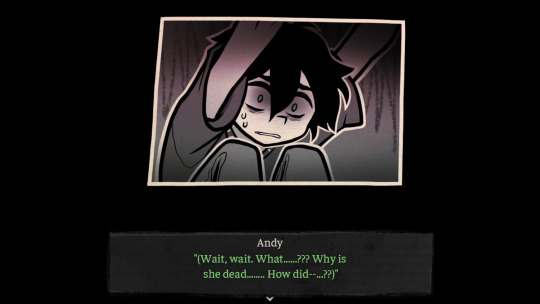
Oh. Right. That happened. So it turns out accidentally killing a child can do a real wallop to your sense of self. That is if one of the morals you set for yourself is "don't lock your sister's friend in a crate and leave her to slowly suffocate." Maybe not written down that way word for word but it was probably implied.
Though, it's not because of the killing itself part, but the potential consequences. Because as stated before, one of the morals Andy learned from his mom was to act normal. Normal kids don't kill other kids! If they're caught they can never fit into society where they have the best chances of living somewhat decently. And this isn't just for Andy anymore, but for Leyley too. Andy needs to act normal for Leyley's sake as well.
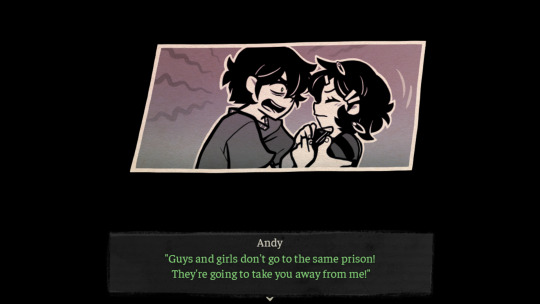
She's become an extension of him, a part of his identity. He might not care about pleasing his mom anymore, but "take care of Leyley" is ingrained into his psyche now. And Nina's death jeopardizes his ability to be with Leyley.
So yeah, this was another failure on his part. But hey! Andrew was never caught, and by highschool he's managed to live a fairly normal life. And besides Nina's death was an accident, it's not like he wanted to kill her. He could still act normal! He can still take care of his sister like a totally normal brother would! He has friends and someone he's seeing like any other high schooler. Sure he doesn't really like anyone except his sister, but other than that he can still be a normal member of socie-
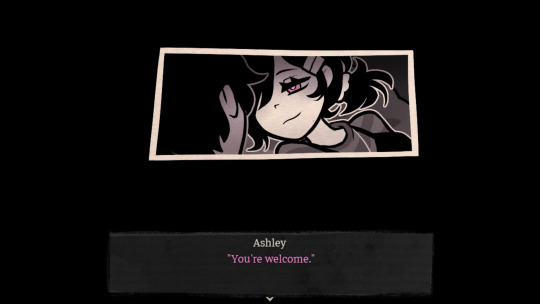
oh. oh no
Okay so from the moment he realized he was down bad for his sister he realized he hit another snag in the whole "acting normal" thing. Wanting to fuck with your flesh and blood is a pretty clear sign of abnormally in society, maybe even worse than the child death in some circles. Not to mention this is the first time realizing that he could be the one to ruin Ashley. He's supposed to take care of her and be her everything, but if he does what his moldy little heart wants he'd be the one directly harming both their chances at normalcy. The thing that protects them. It's why he started dating Julia in the first place even before realizing his feelings!
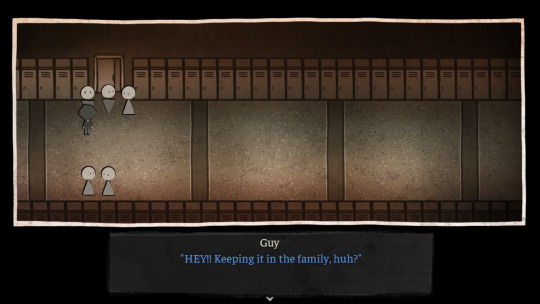
Nina was an accident, another problem Leyley caused that he just had to take responsibility for like always. But the lovesickness for Ashley and what it could lead to?
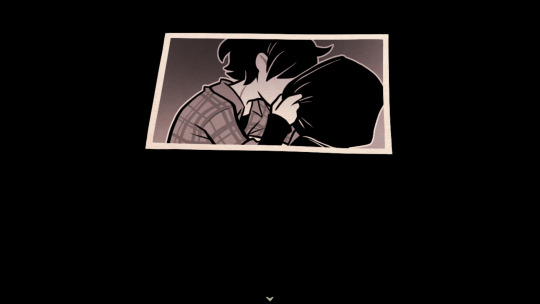
Real fucking hard to "accidentally" smooch your sister on the mouth sir.
So whoops another failure, jot it down. But hey it's not like he actually did anything right? (Aside from peep on Ashley but that not doing anything that's just looking right?) He's still going to be what society expects him to be. He'll finish college, get a job, marry his girlfriend, he will not fuck his sister, and he will and start a family like a normal man. It doesn't matter how sincere he really is about it, so long as he's still doing everything right, right? He can do this!
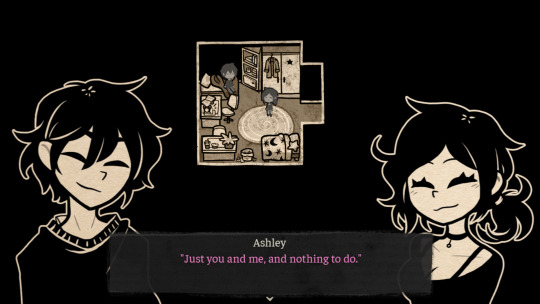
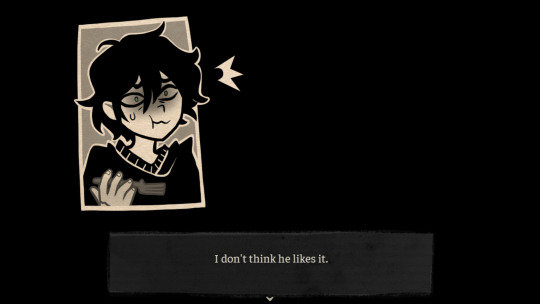
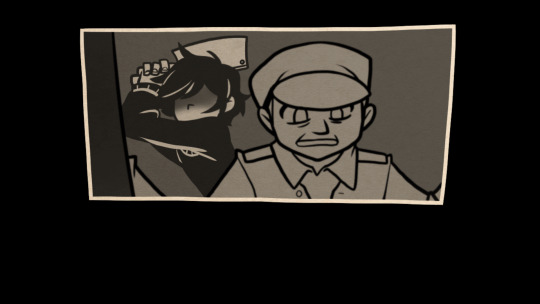
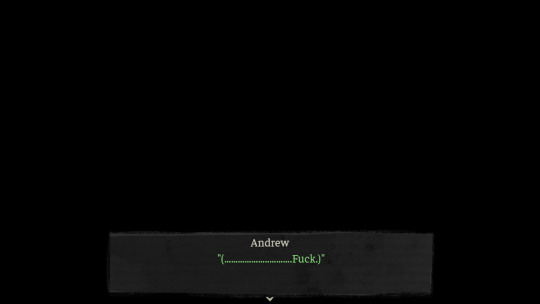
At this point you have to wonder how he's still a Grime Soul. It's as I claimed before though, grime souls may fail to follow their morals, but it's only when you get to tar souls-to-be that you get to breaking them. Because breaking them instead of failing them implies a certain level of responsibility. It takes effort to break something and be able to admit you're the one who broke it. Leyley broke her one moral unconsciously, but even she realized what she did afterwards. Andrew's an adult now, and has all his life been able to justify his moral failings as just failings and nothing more.
Killing Nina? An accident, and it was for Leyley. Crushing on Ashley? He didn't do anything to pursue it. Not loving Julia and having violent sexual fantasies? He still tried to be a great boyfriend didn't he? And it was only fantasizing, just like how he fantasized about Ashley while he was with Julia. Nothing Happened!
An accident. For Leyley. Didn't follow through. Didn't get caught. He might be bad, but he's not that bad.
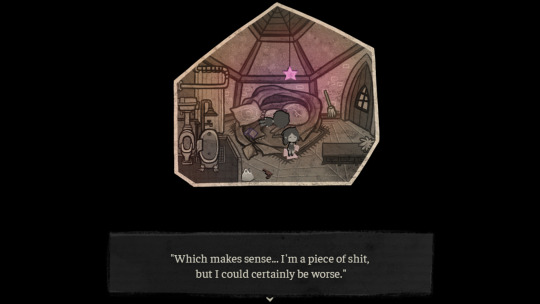
This might be in part why the Entity is so dismissive of Grime Souls. Grime Souls are cowards, too mentally weak to commit to following their set of morals and too weak to break those morals themselves. Not untainted enough to be edible, not strong enough to hatch. Complete waste of space. The only reason the yarn ball was cool with making a deal involving his soul in the Andy ending was because of the Tar Soul's connection with him.
Anyway in summary from childhood to escaping quarantine, Andrew's faced hurdle after hurdle that tests his set of morals, and he managed to trip over every single one of them. By the time they left the apartment he was left with a very short list of morals he feels he needs (or has left) to follow:
1 - Keep Ashley Safe - Included in this is also not taking advantage of Ashley by making her throw the sheets in the laundry.
2 - Act Normal - Sure they just ate a guy and killed a few people but they can still go back to normalcy. Things could still work out. They just need to steal some IDs and live quietly and not kill-
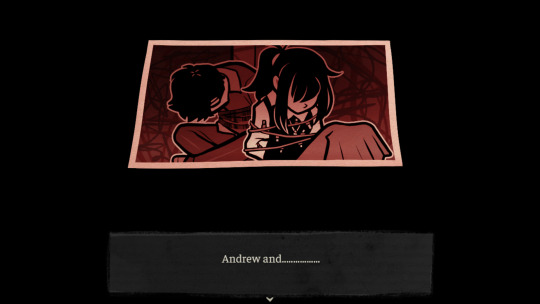
...Okay one moral left. Keep Ashley safe-
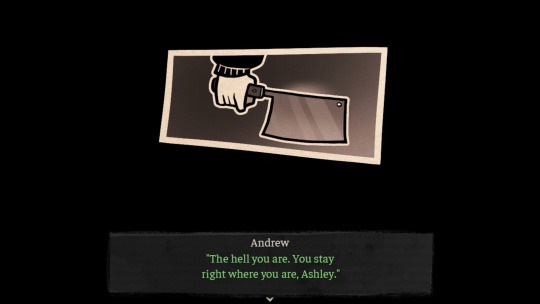
Hold on there champ let's do things in order. Back to the tied up parents.
Decay Time
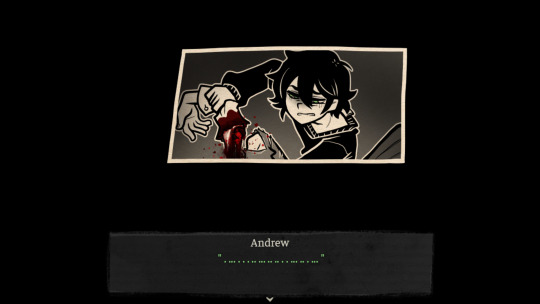
This moment is when normalcy was no longer feasible. Not because of the guilt of killing his parents obviously, but because it shatters what was left of the act that he and his parents had. That act of normalcy where he and his mom pretend to be a happy family. One of the first things he ever learned was important was this act. And now that's gone.
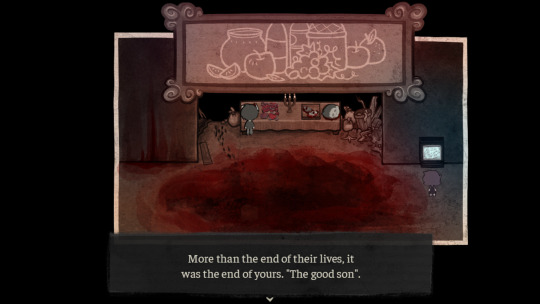
Another failure, just like with Nina. But hey, he can just blame this failure on Leyley again. His rotten little soul can still remain a grime soul.
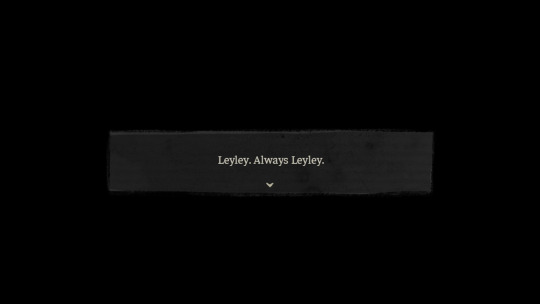
Path Splits
After this in Decay the only thing keeping Andrew's moral compass together is keeping Ashley safe, even if she's an ungrateful, selfish piece of shit. Normalcy is no longer feasible to him, not with Ashley around to fuck things up like she always does. Forget finding IDs, forget sneaking back into society's good graces so that they can live the quiet life. The best he can do at the moment is make sure they don't get caught. And as the person who's supposed to ensure their safety, because there's no way he can trust Ashley to, he takes the trinket to try to get a vision. And then he finds Ashley's body parts instead. Because of him, apparently.
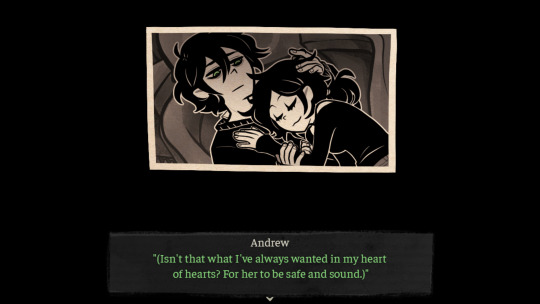
So Ashley forces him to make a choice: Andy or Andrew. If he chooses Andy then nothing changes about his morals and soul. In fact funnily enough choosing Andy means actually succeeding in keeping Ashley safe. Except, well, it won't be him keeping Ashley safe, but the demon. Maybe Andy's a little sour about that. And the fact that he can't do anything but sit around and wait for Ashley to return. But hey at least he doesn't have to take care of Ashley anymore. No responsibilities, no stressing about what comes next or if they get caught. He gets to stay safe with Ashley, while she goes out with the demon to be the breadwinner for her favorite toy.
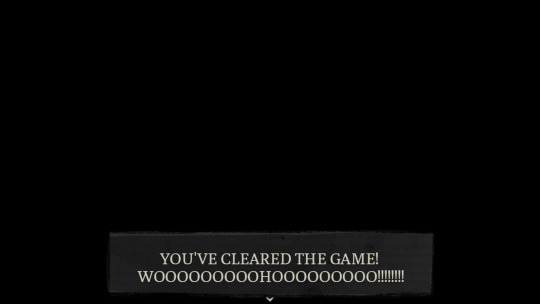
If he chooses Andrew though he's standing his ground. He's making an active choice and is sticking to it, when before he'd prefer letting choices be made for him so he doesn't have to bear the brunt of what he's done. He refused to take the easy path that Andy would. And he's enforcing his choice.
After this he doesn't mourn the loss of normalcy anymore. Who cares! They're going to get caught anyway. He doesn't need to act for anyone anymore, especially not for Ashley. He's bound to act more carelessly, but he's so much freer than Andy could ever be. It's almost cathartic how freeing it is not give a fuck anymore.
Does that make Andrew the "good" choice?
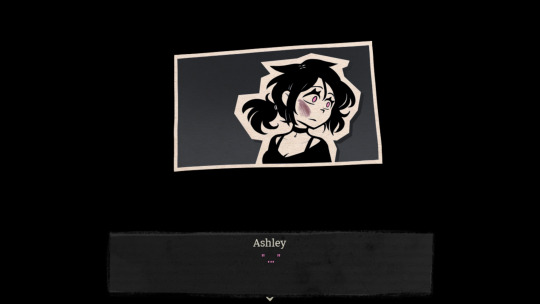
Um.
It uh...it depends on your perspective. And also what happens next, which is where the paths divide. Ashley's desperation for Andy was because she knew Andy wouldn't be capable of killing her like in the vision, but Andrew would. That backhand showed that Andy was gone and not coming back. Now she's stuck with Andrew, someone fully capable of violence and far more demanding. How she reacts to realizing it's just going to be Andrew from now on depends on what she chose to do in the previous vision, and in turn will change how Andrew reacts.
Shots and Such Andrew
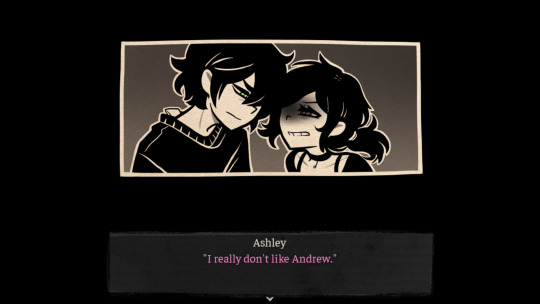
The Shots and Such path happens when Ashley chooses to shoot Andrew in the episode 2 vision. The fact that Ashley chose to shoot him shows her willingness to go on the attack and to be reactive to Andrew when he's seen as threatening. She might accept that she can't have Andy, but that doesn't mean she's willing to bend to Andrew. When threatened she's rather fight back, even when it's obvious it will make things worse.
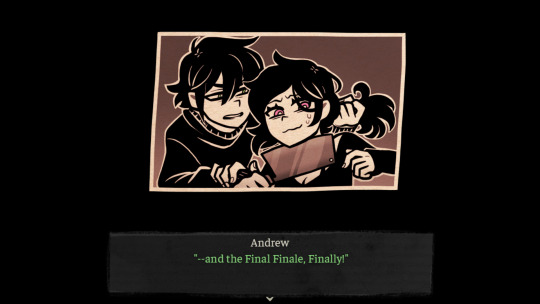
And it does. Ohhhh boy does it. Ashley smored a camper during the Andy ending because she doesn't respect Andy, but she smored a camper in the Shots path because she's retaliating. Just like when she told Renee about the neighbor report despite promises. This proved to Andrew beyond a doubt that Ashley can't be trusted to behave, that she's still Leyley. And Andrew's had it with Leyley. Not to mention hearing that she shot him during the vision proved to him she's willing to leave him. So if she's still a brat who'll get them killed anyway, if she doesn't even like Andrew and can't appreciate the things she does for him, if she's capable of leaving him, then there's no point in continuing on with this charade. So he might as well do something he fantasized about since the quarantine; dying in each others arms.
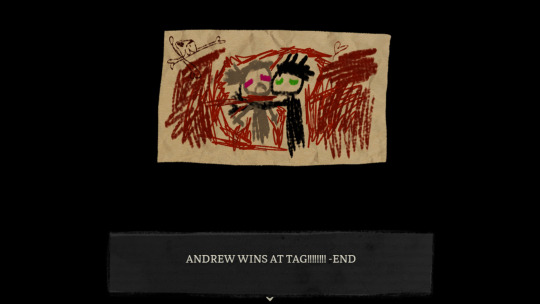
I mean he wanted to do it with Ashley, but Leyley will have to do. Hope I don't need to further explain why "trying to commit a murder suicide with your sister" clashes with the moral of "keep your sister safe." If this was Andy (not that he'd have the guts to) maybe he could have clocked this as another failure. That it was just Leyley making him doing it as always. But no, he's Andrew. The a big grown up. He's knows that as much as he thinks Leyley drove to him to this point, its him chasing her with a butcher's knife. He's broken this moral with his own hands, and there's no point shifting the blame. He knows what he is, and he doesn't care anymore.
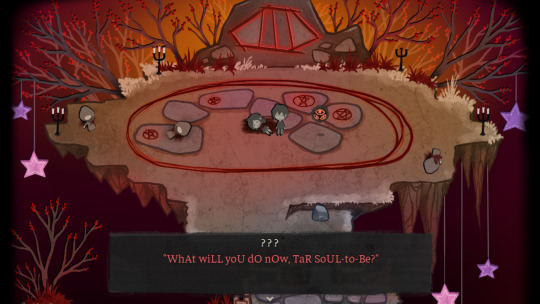
With this moral shattered Andrew has no qualms enacting violence. The rule already broken, there's no going back. It's no longer about what's right, but if he wants to or not.
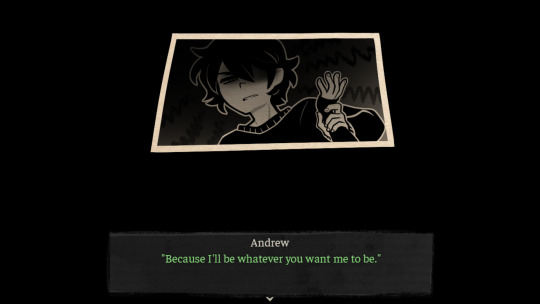
It's why he felt no regret beating Ashley. He already knew what he was capable of, he even knew there was a version where it could have led to her death, and he did it anyway. Because if its already broken, what use is there trying to put it back? The most he felt afterwards was pity. Not that what he did was wrong, but that Leyley herself is just pitiful.
But...there's one thing left that Andrew won't do. One tiny moral left to keep. One thing keep the shell around his soul intact. And that's to not have sex with Ashley...no, wait, sorry. To not have sex with Leyley. His baby sister. The perpetual brat who never grew up, who isn't capable of making her own decisions. A child in an adult woman's body. That's Leyley.
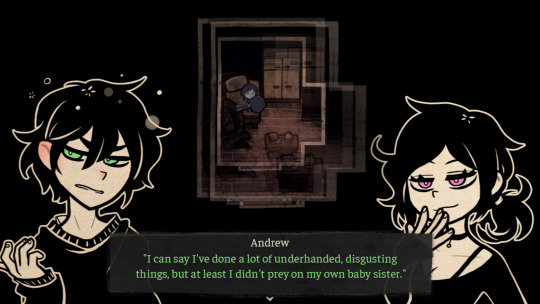
He can't say he can keep her safe when he's more dangerous than the demon at this point. Hell he even says the demon is actually better at taking care of Ashley. But the least he can to is not fuck someone he considers a child. That's where the disgust comes in. It's not about the incest, because again at this point he doesn't care about normalcy anymore. It's the disgust of exploiting someone he couldn't see as an adult. The little girl he raised himself.
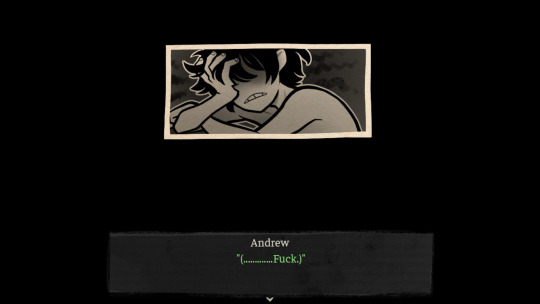
And then it happened. He was drunk, he was pressured into it, he can't even remember half of what happened, but regardless the deed was done. Ironically this would have actually been a moment where he shouldn't have to take the blame. He didn't choose to do this sober, it was Ashley who pressured him into it. He literally states upfront that what she did would've pout her in jail. But that would imply that Ashley was an adult who could make her own choices. No, it was Leyley. Leyley can't help be the way that she is. If Andrew let Leyley take responsibility for what happened that would imply that she was an adult who could make her own decisions. She can't help being the way she is. A child. A menace. A burden. A thing. A disgusting lump that takes what it wants. It's in its nature.
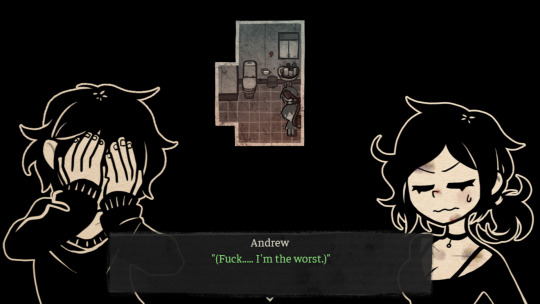
So despite not breaking it himself Andrew still takes the responsibility for the shattered pieces. The moral eggshell is cracked open and a Tar Soul emerges, burnt to charcoal. This time there is truly nothing left to hold Andrew back. No more morals to consider, no more fucks to give. Just like Ashley, it's about what he wants or doesn't want, not what's right or wrong. He'll do what he pleases without the burden of responsibility or morality, be it jump out the window to traumatize a group of school kids with Leyley or put a ring too big to fit on her and do whatever he feels like to her without remorse.
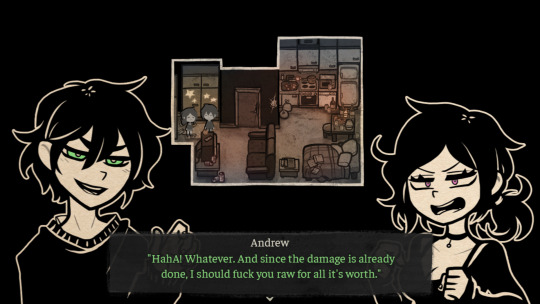
In summary Andrew became a Tar Soul-To Be because he broke his moral code of protecting Ashley, and hatched into a Tar Soul because he broke his last moral of not having sex with Leyley.
Decaying Away Andrew
Okay let's wash our faces and rinse out the bile in our mouths and talk about the more hopeful (?) path.
In Cliffhanger path Ashley's more willing to behave. There's reasons for this but I'll set those aside for another post. What matters is that this results in Ashley proving to Andrew she can listen and can behave (somewhat.) If Andrew calls Julie to test her this becomes more apparent, since Ashley was able to keep quiet despite his pushing. Andrew made the call fully expecting her to have a meltdown, but to his surprise the most she did was try to end the call early.
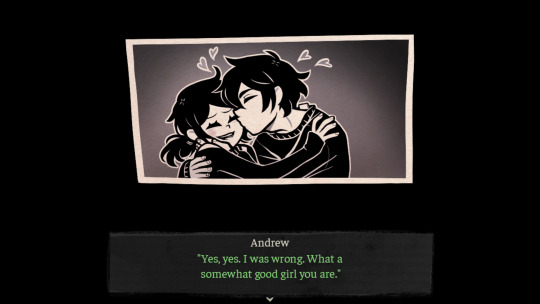
Their dynamic is still very rocky, but this moment stabilized it a little. Andrew might have fully given up on normalcy, but there's a chance that the sibling can pull through together.
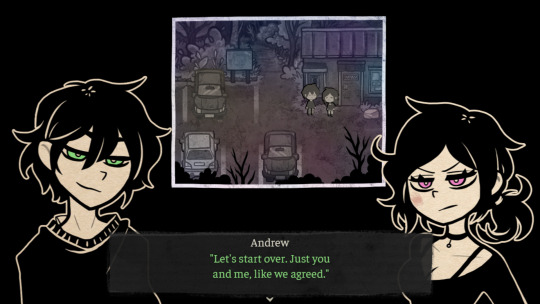
Because of this (and the fact that Ashley didn't smore the campers) Andrew never breaks the one moral he still has: Keep Ashley Safe. It remains his most important goal. Not to say he doesn't have the risk of breaking this moral still, but it won't be through a butcher's knife. And there's also the "not fucking Ashley" rule still ongoing, but this time it's not because of Leyley, but because Ashley said she'd be cool with doing it to make sure he stays and doesn't kill her, making it seem transactional at best and exploitative at worst to do it. He wants something "real" with her.
However there is a point in the Demon Therapy Session where Andrew almost breaks and says he should just do whatever he wants to Ashley, though he backtracks because if he asks she'll just agree to it. But that defeats the purpose. Regardless this shows that despite wanting to keeping Ashley safe he is at a breaking point. He wants to keep her safe, but he wants to fuck her up too. Things might seem more stable, but Andrew's soul and his morals continue to slowly rot away. Until it'll no longer be a question of "if" it happens, but "when."
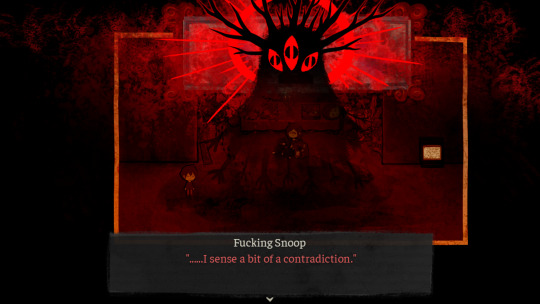
Yeah, no kidding.
Aaaaaaand I've reached the image limit so I'll stop here. Somehow while writing this I ended up with like five other posts in mind, so I'll send out another poll and let you folks decide. Feel free to send asks like "why are you like this" and I'll go "wish i knew" or maybe even asks about tcoaal idk. Toodles.
25 notes
·
View notes
Note
I'm so excited you're interested in kpop demon hunters! Could you possibly write some headcanons for Mira (romantic or just general analysis, whatever works best for you!)

;KPOP DEMON HUNTERS MIRA - General Headcanons

Compilation of headcanons and analysis on Mira and other related things.

anon you dont knwo how much i adore mira shes literally just like me fr shes the moment shes the love of my life shes SOOOOOOO good!!! head in hands kicks my feet starts screaming incoherently oh my god okay
I went with general headcanons so I could start setting the ground for some future posts about her and the rest of the huntrix! feel free to send another ask if you want those relationship headcanons!

On the subject of family and Mira's role within Huntrix.
The movie clearly states that Mira is the visual and lead dancer, so that's not what I'll be tackling in this point--instead it's about the role she fills in her dynamic with Rumi and Zoey, her current family.
The three of them contrast and compliment each other very well, and we can see that they're united by themes of belonging; all three have struggled with finding a place or people that will accept them wholeheartedly, and even after finding each other continue to deal with the consequences of the way they were raised.
While we get the full context of Rumi's background, we don't get that privilege with Mira and Zoey--these two have only one or two moments in which their respective backgrounds are addressed, and most of the time they're left up for interpretation. In Zoey's case, it's a single moment in their Golden music video, which might imply that she's a child of divorce (explaining why she grew up in Burbank and later returned to Korea).
And when it comes to Mira, we get two family pictures and her part in "Golden," which references the very same family picture from the very beginning. She's wearing similar clothes as her family pictures and the dancers from the "Golden" music video are obviously there to represent her family.
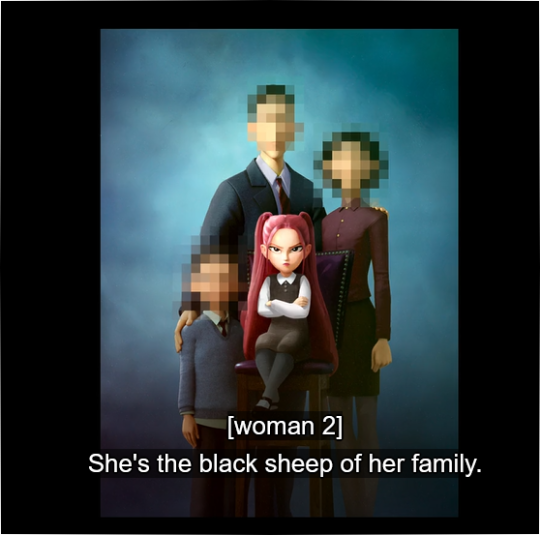
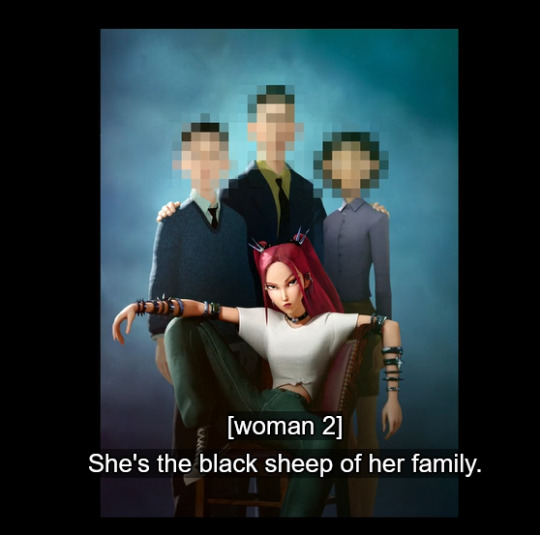
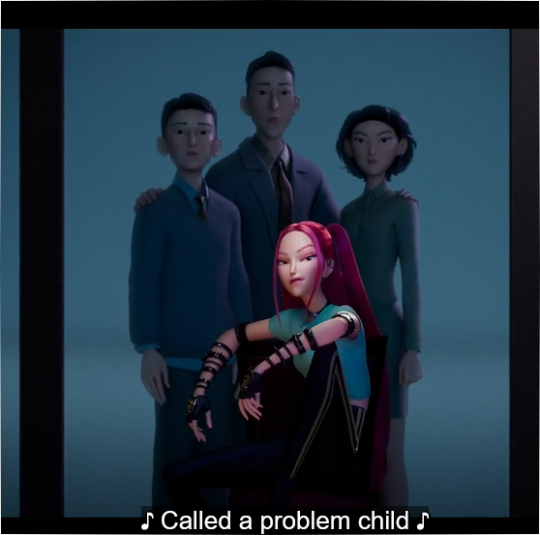
We can gleam out a few details about this. She has an older brother, a father and a mother, all three wearing muted and more commonly "acceptable" outfits. The most standard family one could think of.
A fun way I like to interpret these two initial portraits is the way Mira is positioned; in her younger portrait she's sitting on a tall chair, taller than her brother, dressing in a proper and sensible outfit that was most likely picked for her if her expression and body language is anything to go by. Almost as if presenting her as a prop, the idea of what a good child should look like.
Compare this to the second picture; the stark white of her shirt sets her apart right away, and she's still sitting, only this time she's doing it by her own terms and now there's no one to prop her up like a doll. Instead, she's lower than her entire family, a visual metaphor for how they may have treated her as "the black sheep" the second she strayed away from their standards.
I like to headcanon that she's no longer in contact with any of them, and that neither party has made any real attempts at reaching out to the other. This isn't to say that she's fully moved on from her family and their influence, but she strikes me as someone who's fought so hard to love herself despite everything that she simply won't allow anyone to trample her identity. I can absolutely see at least someone from her biological family trying, if only once or twice, just to see if she's "calmed down enough to come back." Or looking her up online to see what she's up to.
From reading various interviews involving the directors, Maggie Kang and Chris Appelhans, one of the themes they wanted to portray in the movie was the duality of women--their elegance and power, but also their flaws and less picture perfect lives, hence the silly and goofy moments but also Hunters' song focusing on hiding ones flaws, leading to repression.
We see the pressure of expectation and tradition wear all of Huntrix down in various ways and, in Mira's case, it manifested as her doubling down on the things that set her apart, a confidence to be herself no matter what--at the cost of pushing others away because of said confidence and her "jagged edges."
But when Gwi-ma's voice reaches Mira, the one thing that causes her to fully break away from Huntrix is the concept of family; the idea that she doesn't deserve one.
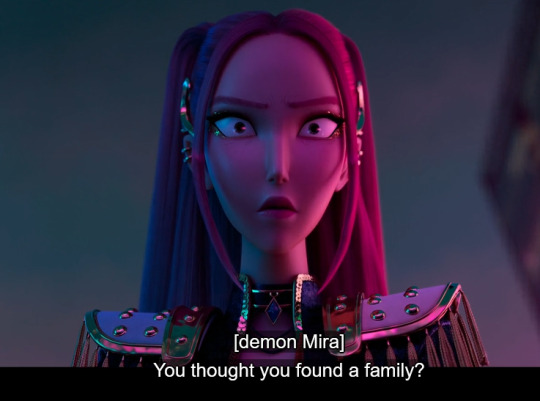
This alone should speak volumes about how at her core, regardless of the confidence Mira displays to be able to live her truth, she's still someone who wants to be understood and accepted. She's still human.
The way Mira speaks is monotone and flat, the way she presents herself is sharp and aggressive, but she's the first one to notice Rumi's secrets. In her words, she's "an expert at reading people," and I like to attribute this to her upbringing--it becomes very easy to know what others are feeling or thinking when you're often the focus of so much negative attention, when you have no choice but to accept that you will always be on the spotlight simply by being different.
What makes Mira and Zoey raise their weapons at Rumi after she's revealed to have patterns is not the fact that she's a demon, but the fact that she's lied to them for so long. To me, this goes hand in hand with the way Rumi argues with Mira, by bringing up "her insecurities," because the concept of a found family matters so much to Mira.
It's very easy to chalk down Mira as the cool, edgy and aloof of the trio, but the movie makes sure to emphasize that these girls are more than the superficial roles they've been assigned--both as idols and as hunters. Within Huntrix, I like to see Mira as the one who brings up the harder topics, the conversations no one wants to have, to say the things everyone is afraid to say because someone has to do it. Not out of malice, but a genuine care for Rumi and Zoey, and the Huntrix as a band.
On the subject of Celine and becoming a hunter.
I'm prefacing this by saying that I do not like or agree with any portrayals of Celine as a one-dimensional, horrible mother to Rumi.
I believe that is a massive disservice to another theme the story is trying to tell about how trauma leads people to pass on harmful mindsets to their loved ones, and how those future generations might be the ones forced to break the cycle of violence to heal. The problem wasn't Celine, but the pressure ALL hunters had to live through concealing their flaws for the greater good.
So if you dislike Celine as a whole, please feel free to skip this section!
Celine gives little information about hunters as a whole, only mentioning that in each generation, three women are chosen to protect the Honmoon--we know that Rumi was pretty much expected to follow this path, since Huntrix was BUILT around her because of the promise Celine made to her mother.
But as far as I know, there's no information on why or how Mira and Zoey became hunters as well. So it's free real estate until details come out, if they ever do!
I feel it makes sense to have Huntrix be formed like any other K-Pop group, with a bunch of trainees and a handful just making it to their debut and whatnot? But it feels too impersonal just like that. I'd assume that Celine, as the only active Sunshine Sister we know of, would at least have a hand in the process to veto or check over potential candidates to work with Rumi.
Not just as a mentor and prominent figure in the industry, but as a mother trying to find girls that her adoptive daughter could connect with--this is based on her relationship with Rumi's biological mother, and how Celine cared so much for a fellow Sunshine Sister that she went on to raise Rumi, EVEN with all the biases she holds towards demons. If there was such little regard for Rumi, if her biases towards demons had truly won, Rumi wouldn't even be here in the first place.
There is an emphasis on harmony for the hunters that can't be ignored and as a seasoned hunter I believe Celine knows this and could've been the one to pick Zoey and Mira from the other trainees to join Huntrix, because she saw that very same loneliness Rumi carries in them. There is also the way Mira and Zoey perfectly mimic Celine's usual hunter speech, and how they immediately know that seeking her for help is not an option. So she's clearly been around enough.
When it comes to their relationship with Celine, I think Celine doesn't necessarily have to be a mother figure for neither Mira or Zoey, but a strong figure in their lives that they respect, since it's thanks to her that the three were able to meet.
This isn't to say that Celine paved the way for Zoey and Mira to be successful without putting in the work. I like to headcanon that Mira specifically came from a dancing career and naturally switched to music along the way, on one hand because this is something that she loves and on the other because it's the very same careers that were considered too outlandish for a girl like her, according to her families.
I also imagine that the news about ... Hunters and the concept of killing demons and all would have to be brought up relatively soon, at least prior to their debut for sure.
It's very fun to imagine that Celine herself trained all of them to fight, helping them once their unique weapons developed and whatnot, since the first trio of hunters had an entirely different set than Huntrix. This is an entirely new train of thought, but I really like how Huntrix's weapons match them; in Mira's case, she's the tallest and lankiest member, so she gets a tall and lanky weapon to match. It's just very cute to me.
Batch of headcanons I couldn't fit anywhere else.
Contrary to popular belief, Mira was the least bothered by Rumi's secrecy and need for accomodation (we see near the beginning of the movie that Rumi has her own separate dressing room to conceal her patterns). Out of everyone, Mira understands the need to have privacy the most. I saw in one interview that one of Mira's voice actresses believes Mira is way more patient that she lets on, and I agree!
She's bisexual, but hasn't come out to anyone but Huntrix. Not out of shame, but because she's a naturally private person when it comes to her personal life. This contrasts Zoey who is out, loud and proud as a way to make her fans feel seen and is known to oversharing on social media. And then you have Rumi who keeps skirting around the topic because of her repression issues.
Mira is the type of person who binges asian dramas, and she will ramble about the latest episodes to Rumi and Zoey over dinner. She also knows exactly which ones to recommend to people that will make them bawl their eyes out with how crazy good she is at reading others. I like to think at some point she gets the chance to star in one of her favorite shows for a minor role.
#kpop demon hunters#kpop demon hunters huntrix#huntrix#mira#i love love love love love her guys i love er SO MUCH#sorry for any weirdness in this post im aggressively typing from a sleepover lmfao
29 notes
·
View notes
Note
hello! this question may come off as ignorant and i apologise, but what's wrong with the terms tme and tma? i know what it means but i dont really understand the (for lack of a better word) issue with these terms.
i looked it up and it didn't really help me all that much :<
I could've sworn I had several posts tagged w it explaining a few reasons why but now there's only 2? 🤔
Here's a starter (link)
There are a few reasons, on their own it's whatever ig, but it relies on the assumption oppression is based solely on identity and not ever considering how your oppressors see you. There isn't a "ableism immune" or "homophobia immune" bc we understand hate crimes are based on PERCEIVED or actual status, not just actual. What's happening to Imane Khelif is being called transmisogyny everywhere, so clearly it's not limited to just transfems, but many will then turn around and say those who were AFAB can't experience it. Some have discussed using "targeted" to convey how it's disproportionately faced rather than arguing how people are incapable of facing it, and I understand that argument better but....
One of the big things is the issue of how people use them. I wouldn't have an issue at all if they were solely personal descriptors, similar to AGAB, to describe your own experience. Instead, people use them to deny violence and oppression. People thinking they get to determine others experiences.
On another side, it's basically used as the Top Misery Award and The Mild Expierence. If you're TMA, it's treated as facing the most or worst oppression, if you're TME, are you really oppressed? Actually, you're privileged (not HAVE a privilege, ARE privileged). This aligns with white feminism believing misogyny is the root or worst oppression.
Most of the people who use it tend to think trans men don't have their own type of oppression faced disproportionately, oftentimes erasing that violence as well. A lot outright deny intersexism and refuse to engage with any points made by intersex individuals about how it affects us as well.
Then there's the whole aspect of how it's "supposed" to mean everyone but transfems (which is kinda a weird thing to want a word for when calling similar ones co-opting), but they only ever use it to mean trans people who were AFAB. You can tell this by how things are said (tme being used for intercommunity), or something like "TRANS TMEs since I guess I have to say that to make it clear 🙄"
There's also the fact everyone defines it differently. Some way you need to have been born w a penis, others say you need to have been AMAB, which contradict each other as someone who was AFAB could have been born w a penis, and some people have multiple AGABs (such as at birth and then a few weeks later)
If you only use it to describe yourself, idrc
93 notes
·
View notes
Note
What can you infer about the editorial meddling Young Justice went through?
Oh god. It’s like the old quote about pornography: you know it when you see it. Spend enough time reading comics and you can just tell.
Notable problems with the Young Justice 2019 run that smack of interference:
You can really tell there was external pressure to include Steph in the run and that she was not originally intended to join the team or appear any further than occasional cameos such as the flashbacks at the Hall of Justice as a link to Tim’s final scene in Tynion’s Tec run. Structurally her story makes no sense whatsoever for how to put a plot together. Steph’s not an original Young Justice character, the run already was supporting two new female characters plus a reboot of Amethyst introducing Amy to a new generation, even before we look at the crossovers from other titles in the imprint. The fact they ended up throwing in a single issue entirely about 'what Steph has been up to and her fight against Cluemaster' in the last section of the run makes it even worse, as that was valuable page time wasted pandering that could and should have been used to give Jinny Hex or Keli Quintela more development.
The entire ‘Drake’ situation, which for a costume change had very little build up, was under-designed, and then disappeared with Tim back in the Robin costume between two panels. It was a test balloon from someone that was comprehensively shot down by some mix of the fandom and editorial, and I remain convinced that DC is gunshy about a new costume and identity for Tim all the way up to the present day because of how badly it was handled.
It was being used as the anchor for Wonder Comics, leading to the required mega crossover (that also spilled over into Bendis’ Action Comics to give it some more space), putting even more pressure on the title to be telling a big crossover story when it was still trying to re-establish “your favourites are back” and suggesting potentially expanding the Young Justice lineup out to around thirteen characters, a massively oversized team that the title was not set up to handle.
Lost in the Multiverse was where the story started to get bogged down by being pulled in too many directions by expectations.
It’s also super telling that the last third of the book got turned over to essentially doing one-shot character pieces about the Core Four, the last defence of a run that can see cancellation coming and doesn’t feel confident launching a new story arc they don’t expect to get to finish. Some of this stuff was clearly background character work they would have preferred to have dripped out over a longer run.
Also I know I’m repeating myself, but having the Tim piece focus on Steph mostly, in the frame of Tim and Steph’s relationship? That’s not where I’d be spending my time when looking at Tim Drake in the focus of Young Justice. How he’s coping with his returned memories of having two or three different lives now? Thinking about what ‘Tell Conner you’re sorry’ means? Discussion about his feelings in terms of moving on from being Robin or not? Nah let’s talk about Steph's problems with her dad instead. That’s not a natural fit compared to what everyone else got and does not follow from any of the preceding story.
Still ropeable that the whole set of storylines about regained memories and alternate timelines doesn’t get to intersect with Lois Lane (which spoilers but also is committed to storytelling about ‘people have memories of other places bleeding through’ prior to the full Infinite Frontier retcon) or explore how those memories change things for Tim, Bart or Cassie (Kon at least does get a story about reconnecting in Action).
And that’s just off the top of my head, ignoring any of the more subtle signs.
I love Young Justice 2019. It is a run that adores Bart, Kon, Cassie and Tim (and particularly Bart. I cannot explain to you how much this story adores Bart if you’ve never read it) and the opening 6 issues make me feel warm and fuzzy every time I read them in terms of how cleverly it works to explain how we get everything back. There are clever subtle moments in the text that give a lot more depth to the story that are implied rather than spelled out: how Cassie suddenly remembers Bart when Bart comes near her, suggesting that her returned memories are a Speed Force side effect from being a lightning rod to Bart; Cassie and Tim sense Kon using TTK and recognise it as familiar, something the new characters cannot; the fakeout in the art where when Tim’s memories are restored, he sees Cissie in his memories, but unless you know the exact YJ98 page being referenced you’d think it was Steph; etc.
But gosh it would have been so much better if it had not been required to devote so much page time to crossovers and to pandering to fans, among other elements.
136 notes
·
View notes
Text
reviewing the silver pegasus episode of metal fusion and it only further cemented my hc that hyoma knew about ryo's survival all along
- theres no fucking way the guardian of koma village isn't gonna know about ryo surviving and being healed for MONTHS right under his nose
- hyoma lies and manipulates people at will to protect koma village and the people he cares about. if ryo genuinely convinced hyoma that the dark nebula would hunt him down if they knew he survived, hyoma would keep the secret
- there is no way ryo makes it up the mountain to leave gingka the letter on the shrine so soon after a fucking volcano collapses on him. hokuto or hyoma must have had to do it for him
- while on the subject of ryo's extensive injuries (re: VOLCANO COLLAPSE) I firmly believe that hyoma must've helped hokuto with ryo's healing process. a DOG did not drag ryo's sorry ass back from the brink of death all by himself. a dog did not wrap those casts or heal those scrapes and burns. sorry. if not hyoma then ANYONE but hyoma is a pretty safe option because he's able to understand what was at stake should ryo be discovered
- in the silver pegasus episode, when gingka's friends come to koma village and try to follow gingka to the shrine, hyoma doesn't participate in opening the door, nor does he follow them when they are finally able to do it. instead he hangs back with hokuto. he has faith that gingka will pass the trial yes, but I also believe that he knew the contents of ryo's letter in advance, and knew it wasn't some crazy upgrade to pegasus waiting at the summit
(bro says this and then fully just does not help LMAO)
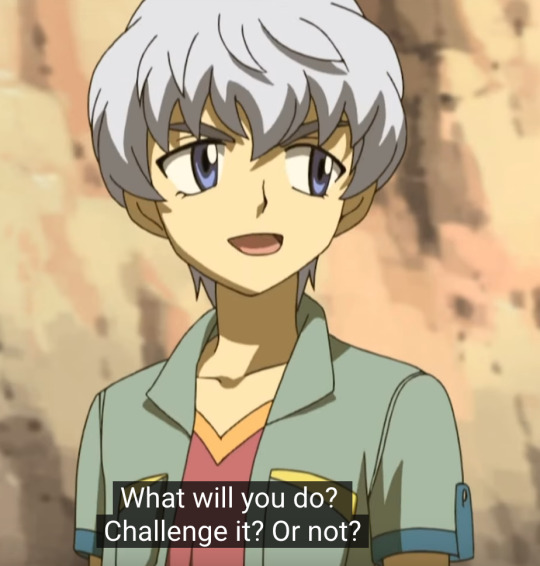
- by now he's gotten a good feel for gingka's new friends and the lengths they're willing to go for him. it could be for his own curiosity and concern about his childhood best friend, yes, or it could also be needing to report back to ryo as to how gingka is recovering after his "death"
- not in this episode but in the end when ryo's identity is revealed, hyoma is pretty quick to accept that ryo is alive and only did what he had to do for gingka to grow. iirc he only has like one or two lines and he says "it's because [ryo] is a good father" that he did the whole thing with destroying gingka's pointer and stuff (in response to benkei questioning this particular parenting move)
- I'm just saying if you watched your best friend grieve the death of his father and be traumatized bc he feels that his dad's death is his fault, and then become *re-traumatized* after facing his dad's killers and losing... you wouldn't be THAT quick to accept that orphaning your kid is a remotely acceptable parenting move. even if it's only temporary. ryo must have had a long time to convince hyoma
- gingka's other friends push back a bit more when ryo explains his choices (except Kenta but he's like 9 it makes sense he wouldnt). even if they didn't, hyoma was gingka's closest friend and knew ryo personally prior to his "death". it doesn't otherwise make sense that HE of all people just accepts ryo's reasoning
- i can see an argument for hyoma not knowing that ryo changed his identity to be phoenix, but again given that hyoma shows complete willingness to lie (he even lets gingka's friends believe he was part of the dark nebula), it could go either way for me
I'm sure I have more to say but it's late lmao tldr hyoma definitely knew ryo was alive wayyyyy before the reveal and probably helped with his recovery too


wowie if u like my silly hc u should read my ongoing fic, so who was I to you, my love?
the premise of this fic was the idea that hyoma knew ryo was alive and intentionally kept it from gingka (and thus an exploration of the impact it'd have on their relationship). it's quite a bit more extensive than that now and even has some lore for hyoma that I made up (including how he becomes the guardian of koma village) so if any of that sounds interesting at all please read it I never stfu about it and it consumes at least half my waking thoughts
more sillies for u if you read this far ily
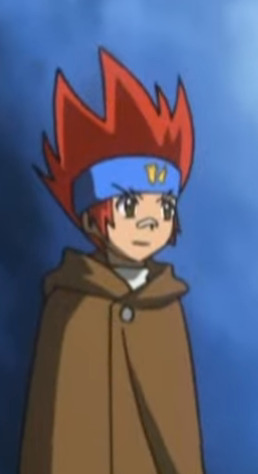
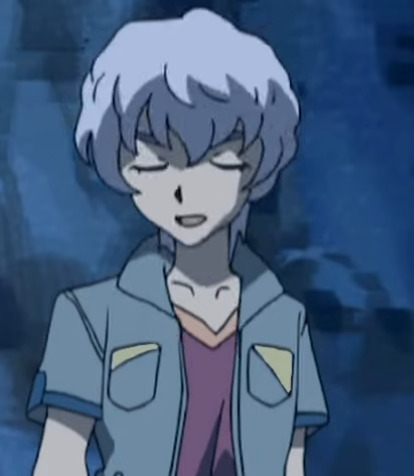
#beyblade#beyblade metal fight#hyoma beyblade#ryo hagane#gingka hagane#mfb#beyblade metal fusion#wwity#sorry i didnt mean for this to be fic posting and then i realized the headcanon really does have a death grip on me#and now i have to make it everyone else's problem
26 notes
·
View notes
Text
Now that the anthology is released, please check it out!! A lot of my friends, both writers and artists, put a lot of work into their pieces, and please make sure to follow their work as well!
However, I'll also take this time to explain why I left the @hws-anthology project.
Before I begin, I must clarify that this is not a callout post, that is not the intention. Rather, it's to clear up and explain the situation for those in the server that saw the aftermath and were confused as to what happened and why I left.
I joined the server at around mid to late February as an artist with the intention of highlighting and promoting the two countries that make up my identity: Uzbekistan and South Korea. I had also joined as I had always wanted to be part of a big project like an anthology, and I wanted to see how it would go.
By August, I had made and finished my pieces so they were ready, and no problems occurred until January 1st. At this time, I had begun a conversation about Korean history and culture. One of the people in the server asked about whether they, a plus sized foreigner, would be stared at in Korea as that was their deciding factor for travelling there. My response was that this may have been the case a few years ago, however this attitude has changed over the years among Koreans as more foreigners regularly visit Korea, and that society is more accepting of bodies that do not fit the standard. And at the most extreme, Koreans have higher standards for nationals compared to foreigners, so foreigners are less likely to be judged by East Asian beauty standards.
However, the owner of the server had expressed firm disagreement and insisted that, from their experience of going to Korea and Japan, that people will stare. I had brought up that as an ethnic Uzbek and a Muslim, a visible minority, neither has my community or I experienced such lengthy staring, if not during the early 2000s when foreigners were first beginning to come to Korea. And even through the spikes of terrorism and following Islamophobia in the mid 2010s, hate crimes, let along staring, was not a common reaction to or against the community, despite the worldwide reaction of terrorism being conflated to people like me that are visibly Muslim.
(in these screenshots, pink = the one who asked the question, blue=the server owner, purple = my friend, orange = third party(general), red, purple = third parties(individual users)
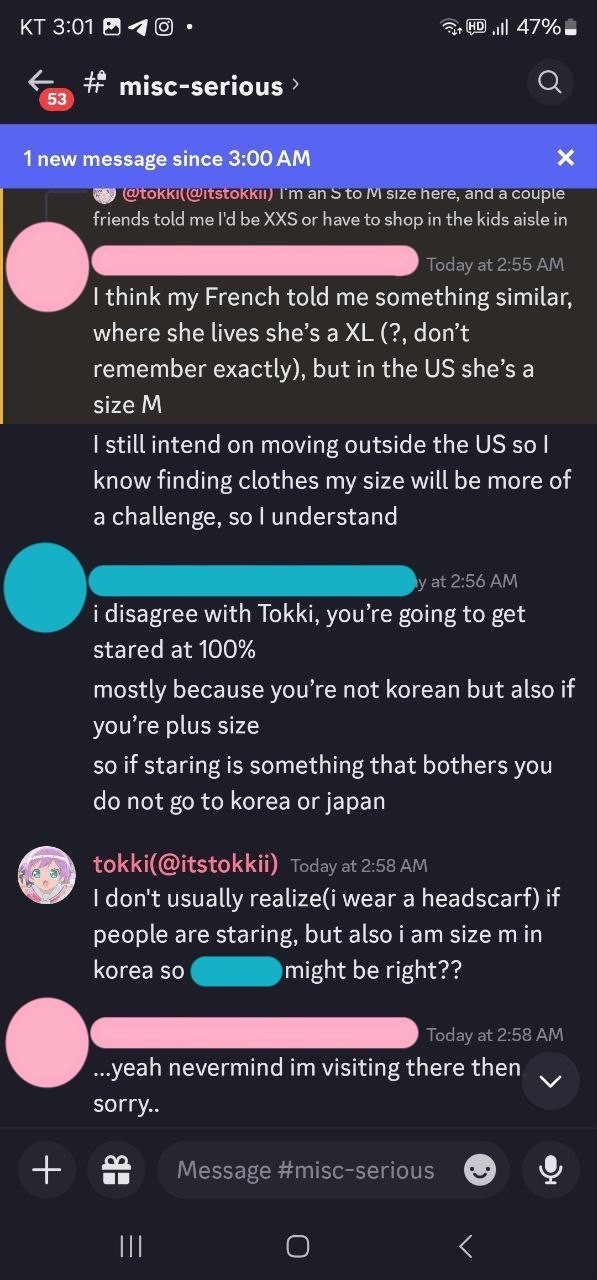
They insisted they were trying to help, as they were "coming from a country where staring is rude," implying that staring is normal and not rude in Korea.

At that point, they had attempted to "shut down" the conversation because we were "both right," and that I "didn't really understand what [they] were saying or where [they] were coming from."
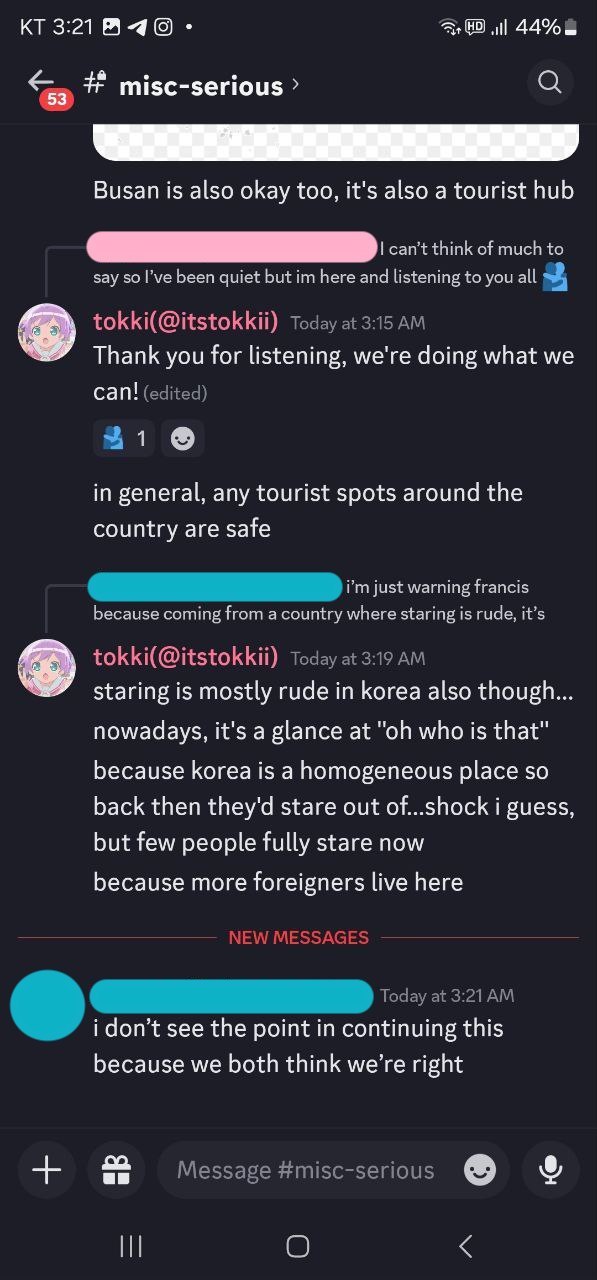
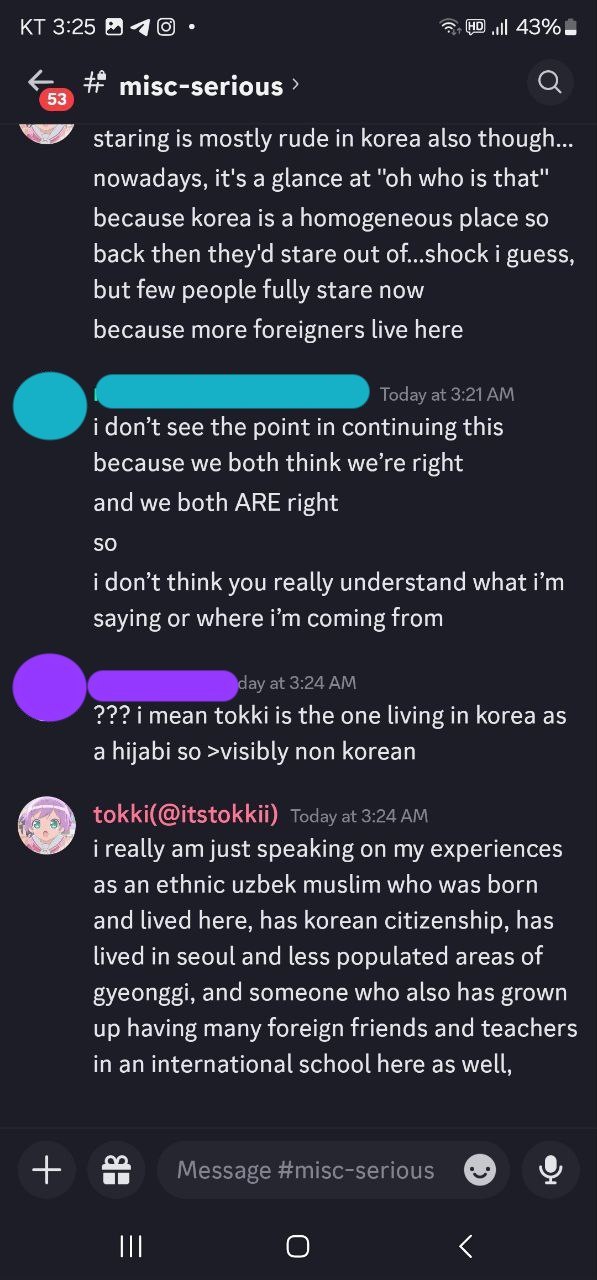
As I tried to reiterate that as an Uzbek Muslim born and living in Korea as a Korean national, and as someone who has lived in Seoul and less populated regions of Korea, has seen the different reactions by Koreans, they instead opted to firmly say that they weren't continuing the conversation, insisted that we can both be right from our different perspectives, but that theirs was more helpful as a non-asian.
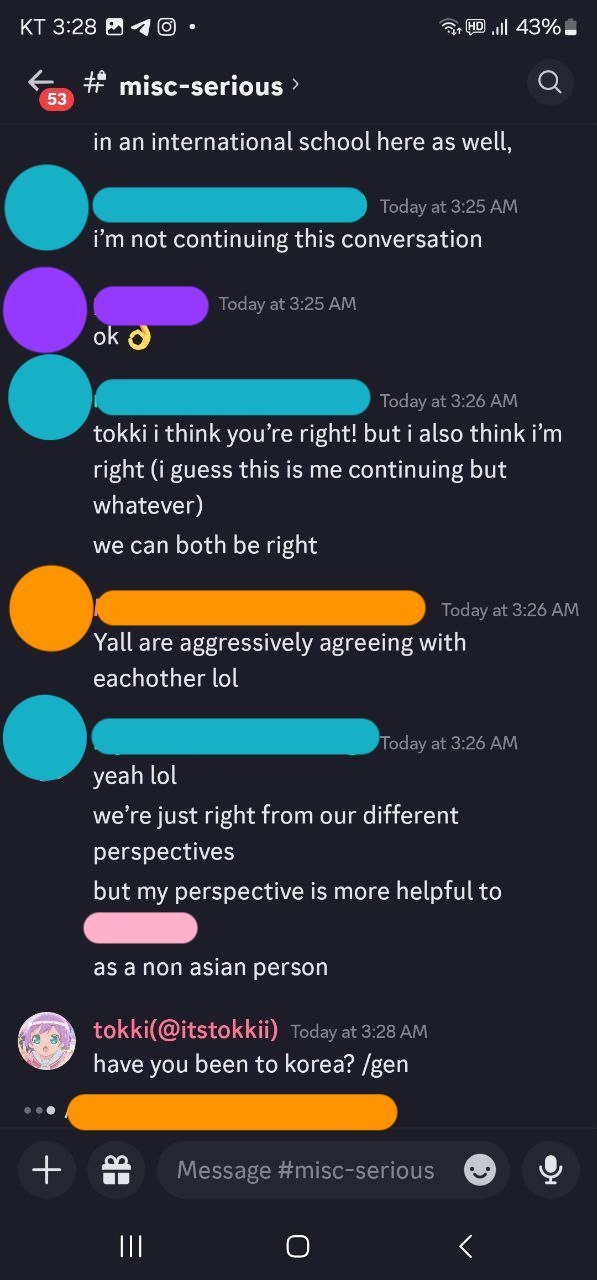
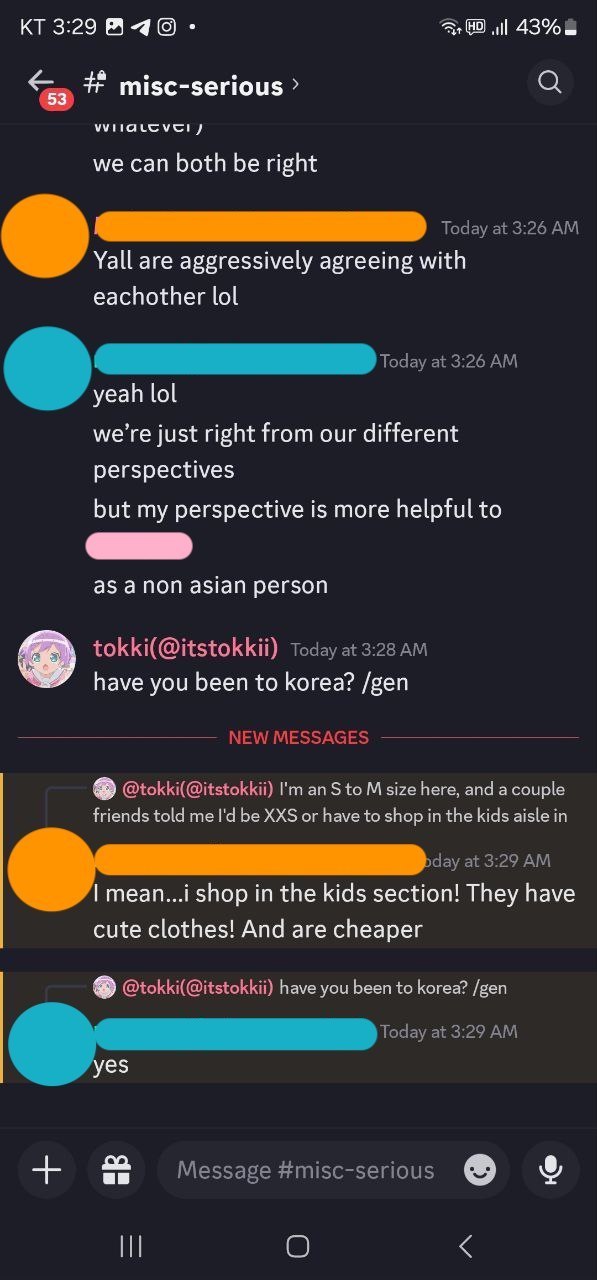
At this point, I expressed my discomfort with someone who is non-asian and has never experienced living in Korea, only as a traveler, speaking over my voice as a naturalized Korean citizen who was born and raised in Korea as a visibly ethnic and religious minority, and even insisting that my advice was lesser compared to theirs.

They replied by saying we both had to "agree to disagree" and that they didn't want to undervalue my opinion or upset me(despite my actual feelings of utter distraught), despite repeating again that they believed their advice to be more helpful. They said that if I did want to continue, I'd have to do it privately because it wasn't helpful to "duke it out in public," and ended the discussion by disabling me from being able to text in that discord channel for a day, and no longer being able to access that channel.
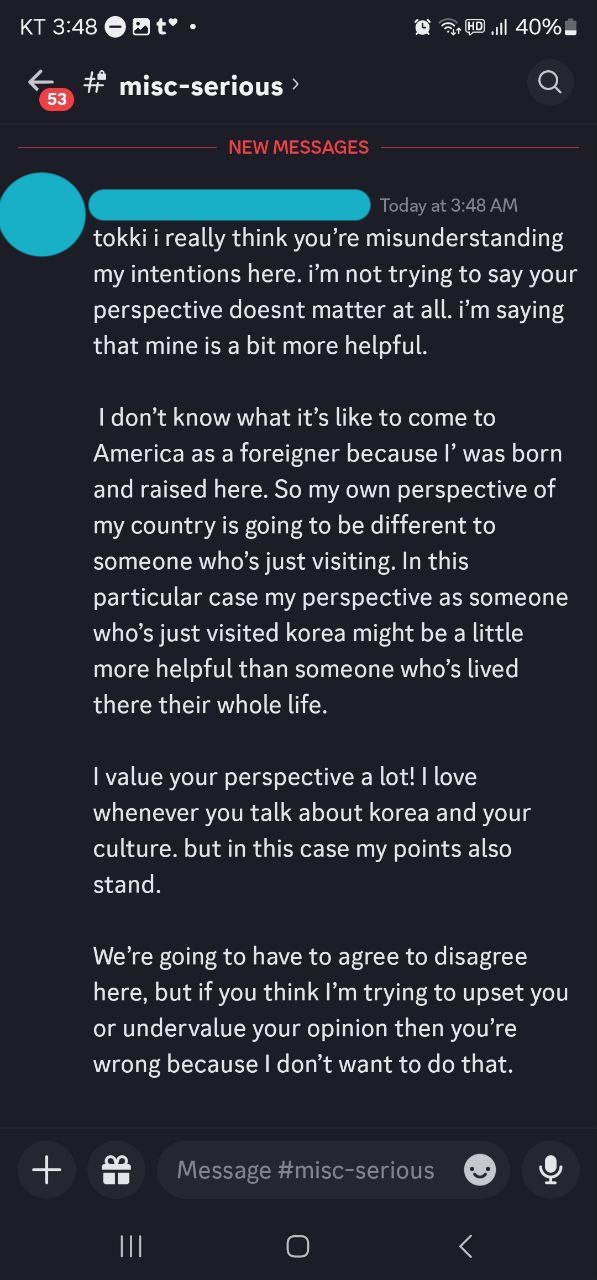
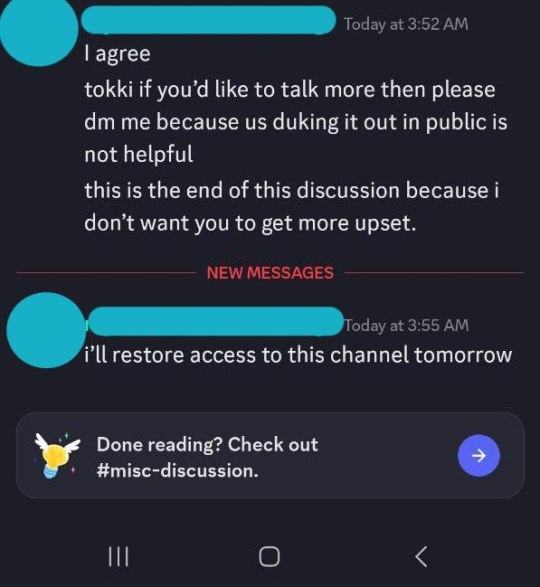
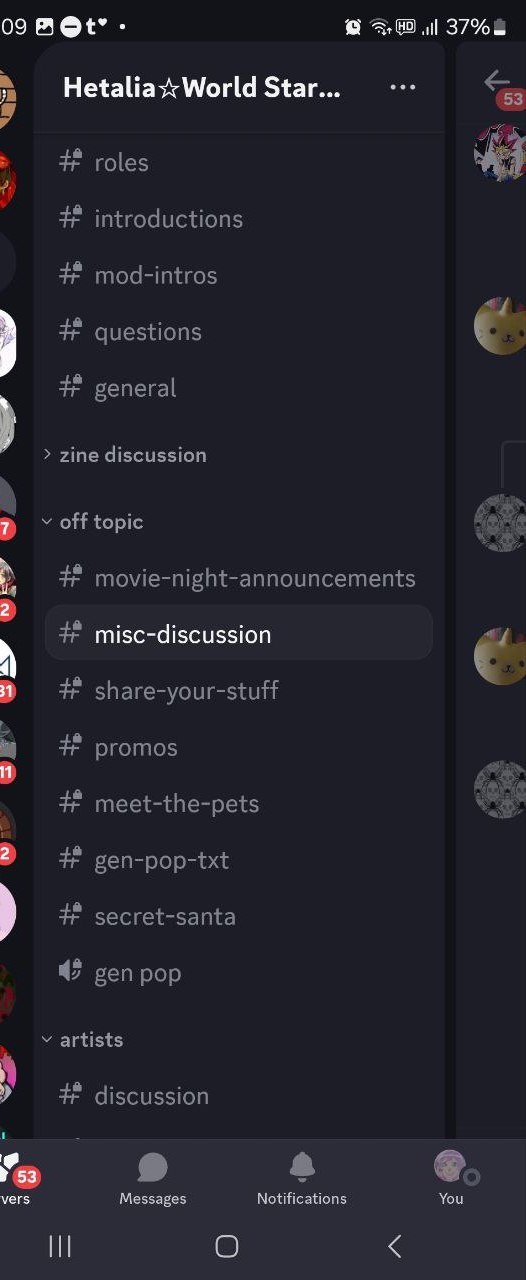
I was left speechless and distraught by this whole interaction. Not only did I feel that I was being talked over by someone who has had no lived experience in Korea to see the trends and beauty standards change along the years, and even placing their advice as "more helpful," but that they had also muted me from speaking up for myself in the channel, effectively placing me in a virtual "timeout." I felt like I was being treated like a young child from the way I was being told to "agree to disagree" to the way I was constantly shut down and had my voice ignored, to the eventual timeout where they muted me from the channel for a day.
And to me, it was also interesting to see them talk to others in the other channels like nothing happened while I was the one crying and shaking uncontrollably from being denied a place to speak and be heard, from having my lived experiences perceived as "lesser than."
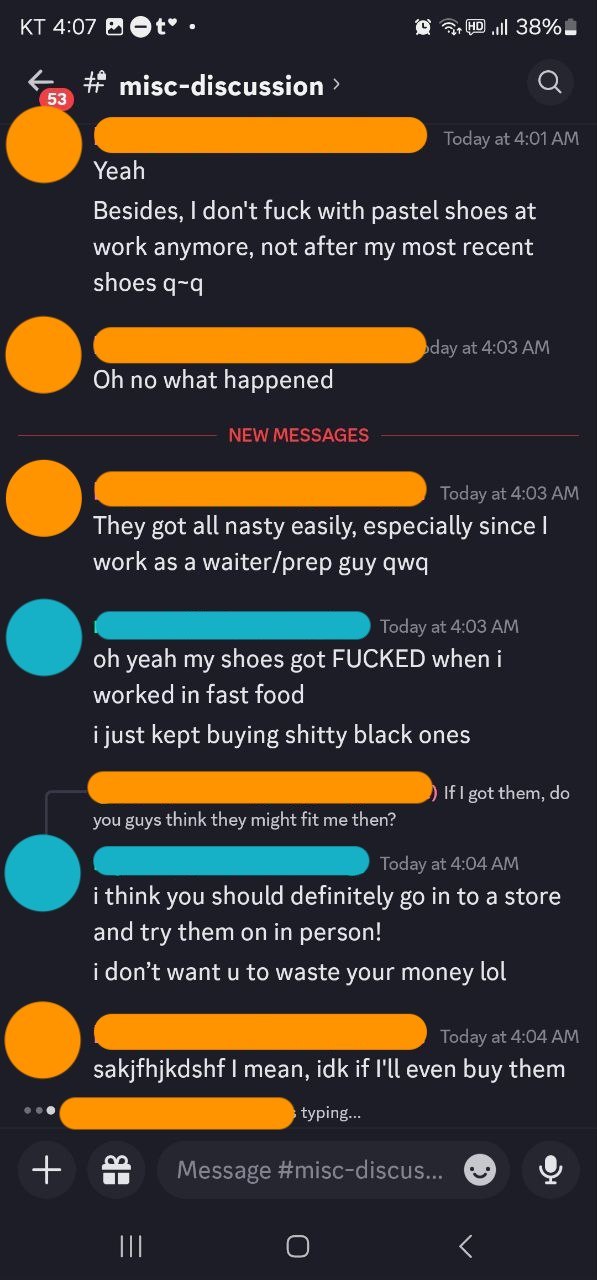
As much as I didn't want to leave the server, I thought it was the better choice because as much as I wanted to promote Uzbekistan and Korea through my art, I realized that it shouldn't have to cost me my mental health to do so. The next day, I left a message as to why I was choosing to leave, and left.
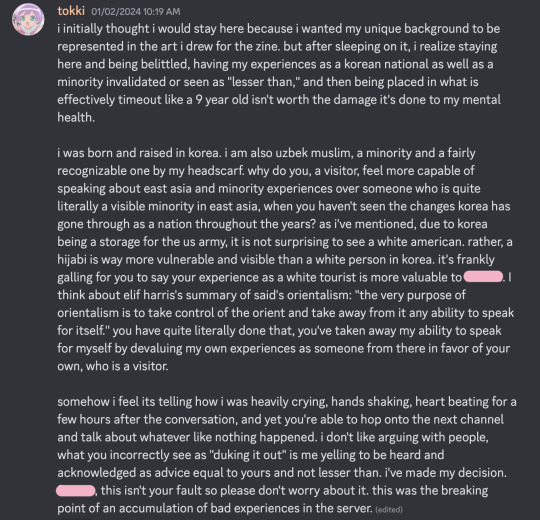
Elif Harris's summary of Said's Orientalism: "The very purpose of Orientalism is to take control of the Orient and take away from it any ability to speak for itself." I quoted this because at its core, the way I was being treated was orientalist in nature, in the sense that the server mod continues to speak over me, a Korean citizen born and raised in Korea, when it comes to advice about Korean society, and then pushes it by emphasizing that their advice was more helpful, while also refusing to listen to me and trying to quell the conflict by repeating that both of us were right, and that we should agree to disagree. And, finally, they time me out like a child and blocks me from speaking up and standing up for myself. Know that I do not make accusations out of thin air because I'm feeling bored.
However, it didn't stop there. According to a few mutuals, my message was quickly taken down by the server owner, who then prevented people from using the channel I had the conversation in(misc-serious) the day prior. A friend of mine tried to repost it so that others would be able to see my message, to which she was muted from texting to all channels and using the voice channel for a week. Others began to question this, and I had heard a few people left the server due to the obnoxious level of muting and the fiery comments by the server owner as they defended their actions as us having a "normal disagreement" and that my message was deleted for being "immature."
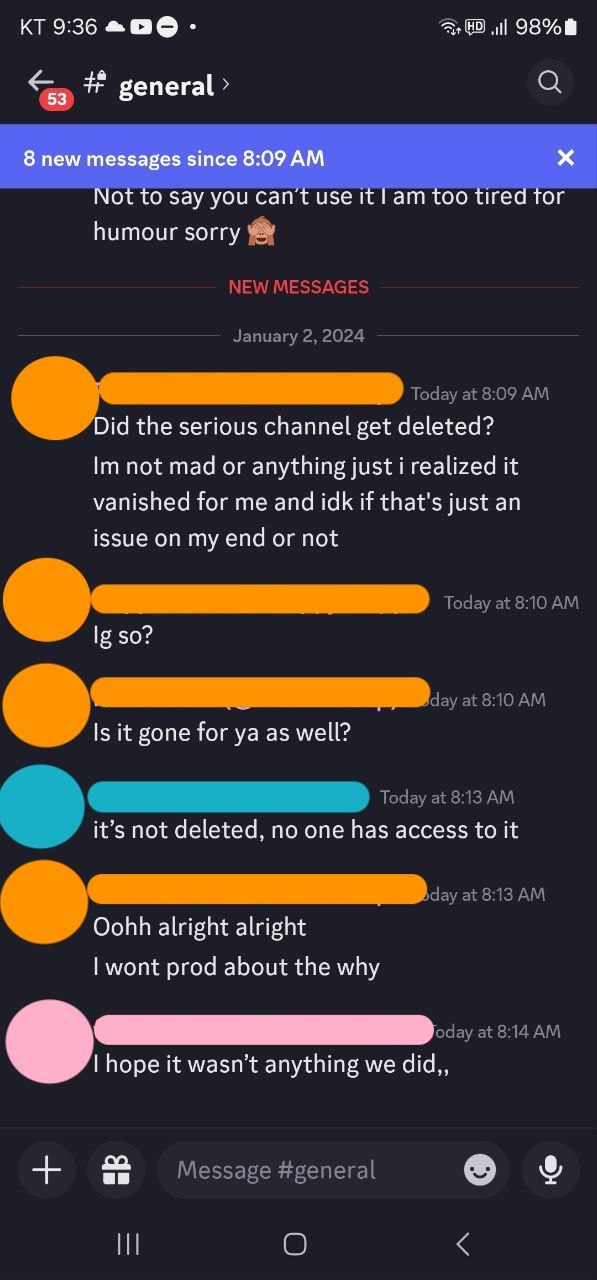
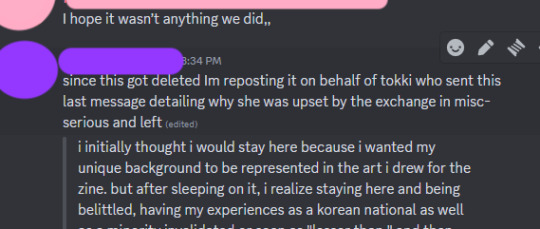
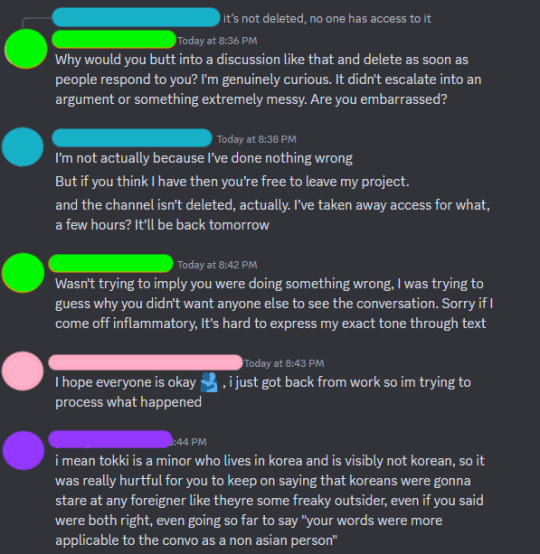
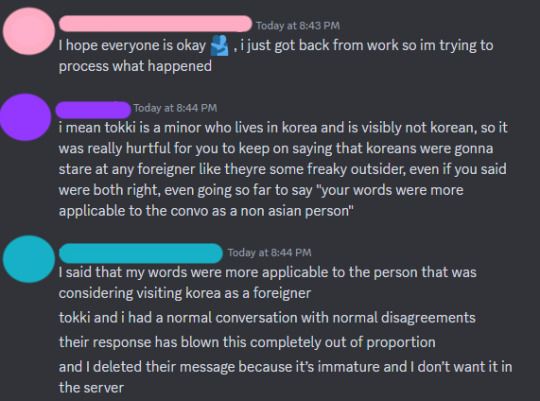
After a little while, my friend was also placed in "timeout" for a week.

Due to this, Green relayed my friend's message on her behalf, and then left, with Red following as well, citing how the server became "oddly toxic."
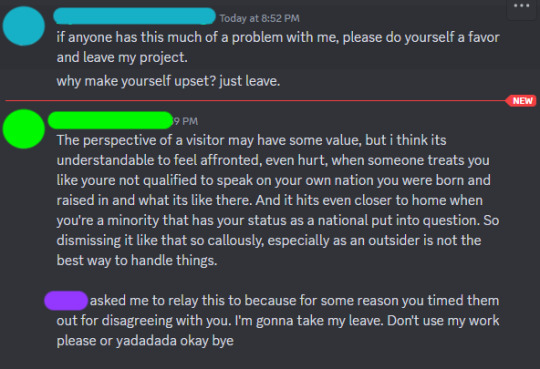
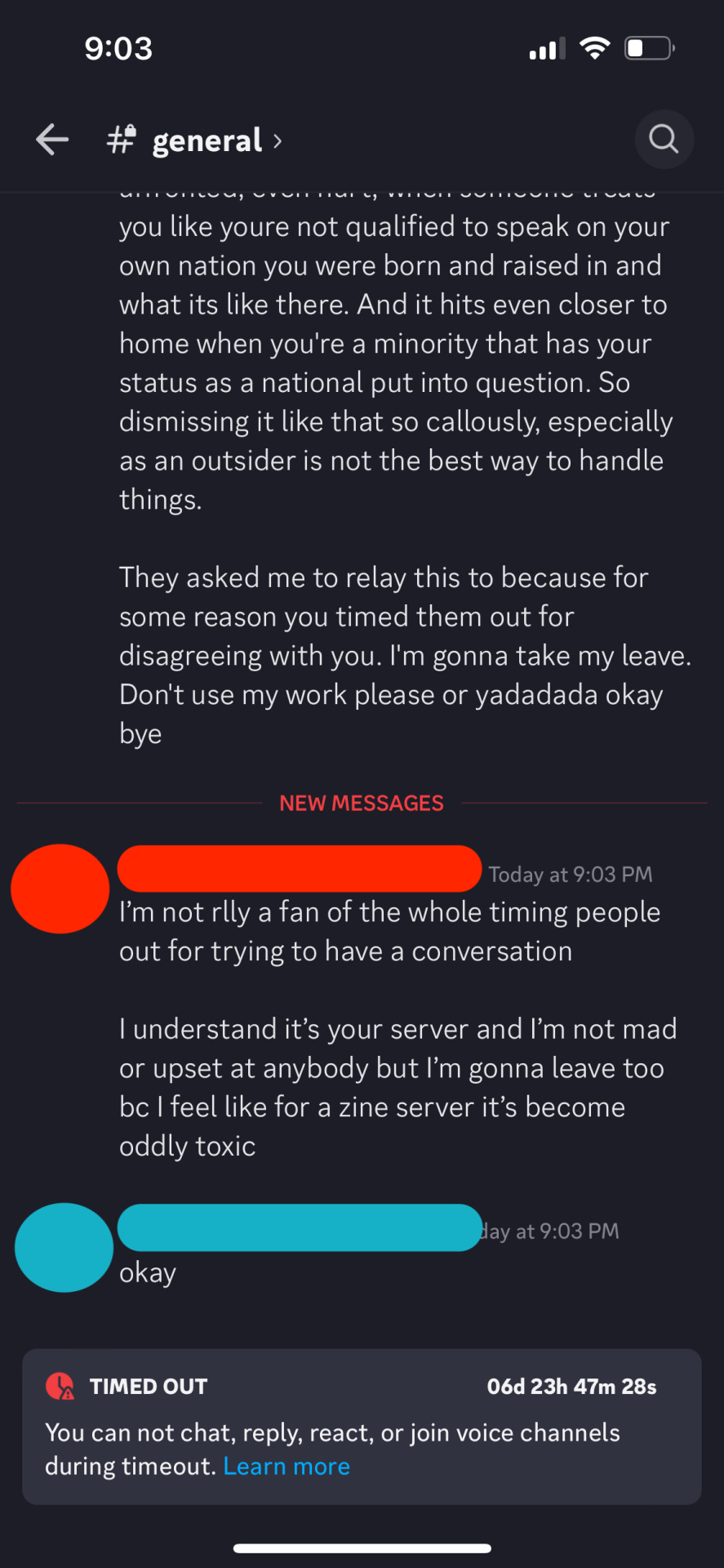
To those of you who reached out and sent me kind messages, thank you so much! You didn't have to, but you felt the need to reach out anyway and even that gesture was truly grand to me, and comforted me as the shock still remained with me the next day.
As for the fandom, I have said it before at the beginning that the intention is not to be a callout post or a post about "drama" or "tea"—do not call it that. Asides from explaining my sudden departure from the anthology weeks before its release, it is also to ask the fandom a few very important questions:
"Why is it the norm for people to speak over others who have lived experiences in a particular place?"
"Why are we invalidating or ignoring their experiences and instead giving the power to speak about a region to someone with minimal interaction or knowledge about it?"
And lastly,
"Why is the fandom so comfortable with this?"
Thank you for taking the time to read this.
198 notes
·
View notes